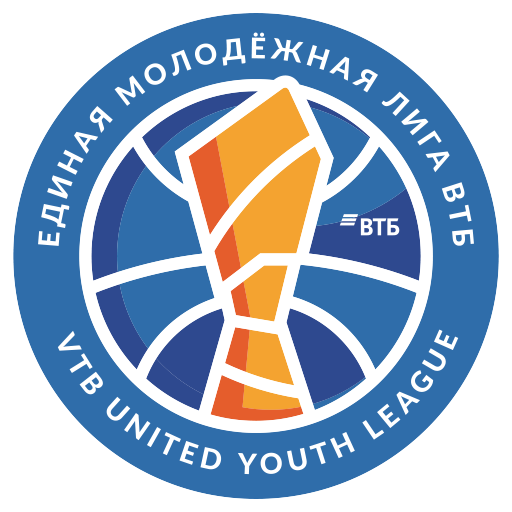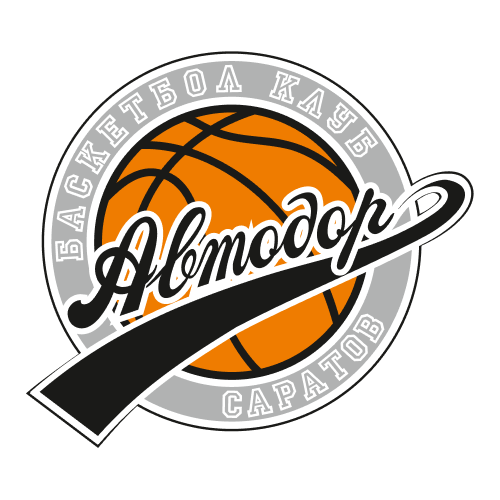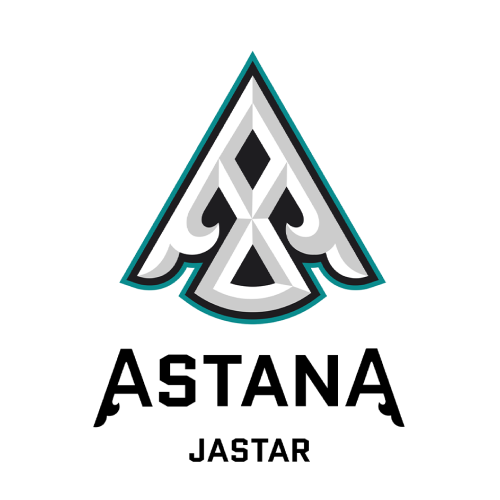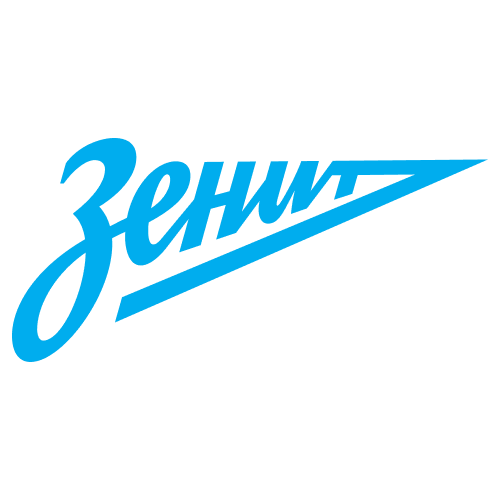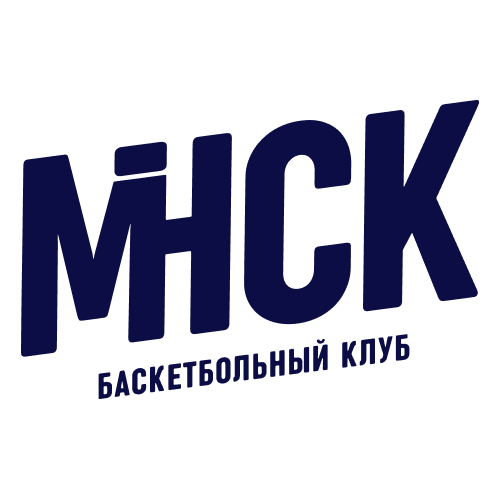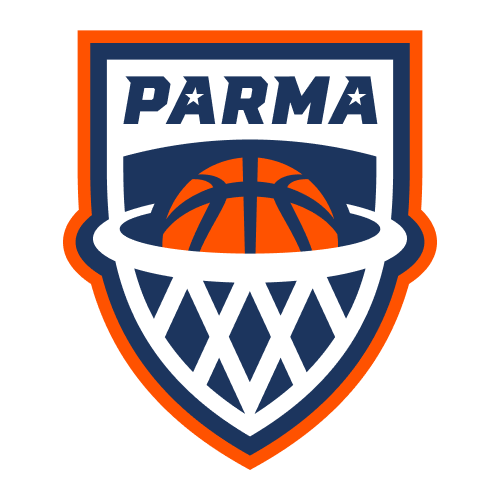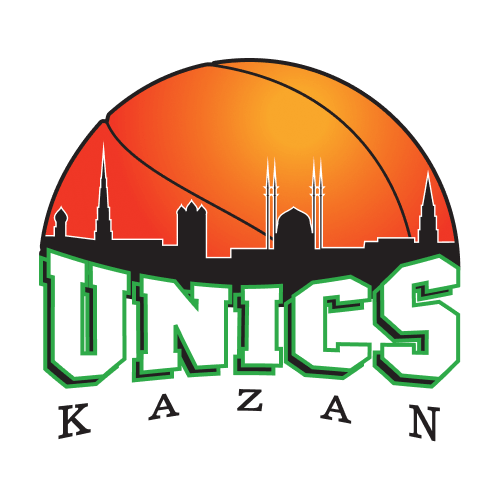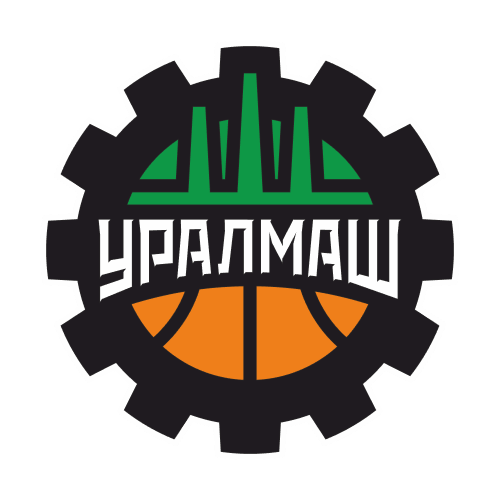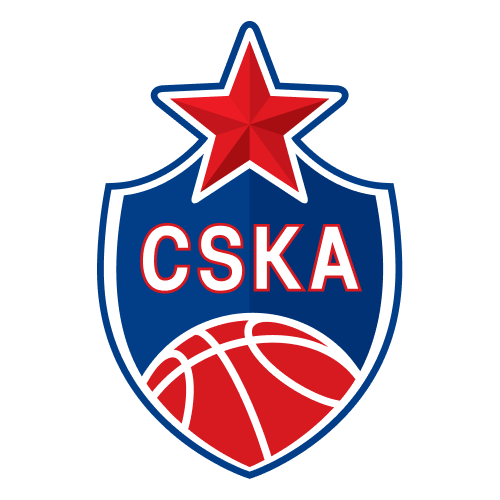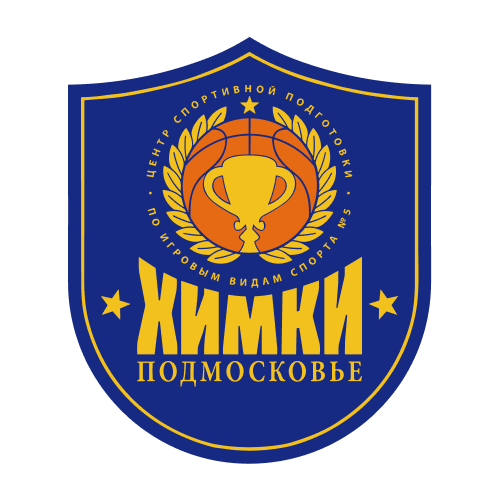2009-10. Old acquaintances reunite
The Promo-Cup in December 2008, eight clubs from five Eastern European nations, Sabonis and Tkachenko at the opening game, a new chapter in the CSKA – Zalgiris rivalry, a surprise from Donetsk, regular season MVP Viktor Khryapa, Russian American J.R. Holden, center Timofey Mozgov at the beginning of his career, 37 points from Marcus Brown, an unforgettable Final Four at the Kaunas Sporthalle and a championship for CSKA in the VTB United League’s first season.
Back Story
After several years of work behind the scenes, the VTB United League first made headlines in December 2008 when it organized a 3-day promotional tournament on CSKA’s home court. Eight clubs from five countries took part in the competition: CSKA, Khimki and Dynamo (Russia), BC Kiev and Azovmash (Ukraine), Zalgiris (Lithuania), ASK (Latvia) and Prokom (Poland). CSKA was led by coach Ettore Messina and European stars like J.R. Holden, Ramunas Siskauskas and Trajan Langdon as well as 23-year-old center Sasha Kaun. Timofey Mozgov starred for Sergio Scariolo at Khimki, while David Blatt held the reins at Dynamo Moscow.

The tournament final featured Russia’s top rivalry: CSKA vs. Khimki. The game was close, but the Army Men ultimately came out on top, 70-66. Siskauskas received the Promo-Cup MVP, while Vasily Titov, First Deputy President and Chairman of VTB Bank Management Board, the VTB United League’s title sponsor, shared what was next for the competition: “Across Eastern Europe, people love to play the wonderful sport of basketball, but until recently there was no way for the top clubs in the region to play against one another. Now we have the VTB United League. The Promo-Cup convinced us that this competition is needed. For that reason, we have decided to move forward and bring this new project to life.”
Format and participants
The first-ever VTB United League season was held in 2009-10. The new club competition united eight clubs from five Eastern European countries: CSKA, Khimki, UNICS (Russia), Azovmash, Donetsk (Ukraine), Zalgiris (Lithuania), VEF (Latvia) and Kalev (Estonia).
The teams were divided into two groups during the regular season: Group A (UNICS, Khimki, Donetsk, VEF) and Group B (CSKA, Zalgiris, Azovmash, Kalev). The playoffs featured a Final Four, with the top two teams in each group advancing to the postseason after a six-game slate.
Sabonis vs. Tkachenko!
The first game of the season, held in Moscow, featured famed USSR rivals: CSKA and Zalgiris. The rivalry burned brightest in the 1980s, when Zalgiris thrice won the league (1985, 1986 and 1987) led by superstar center Arvydas Sabonis. The Lithuanian big man returned to Moscow for the big game in 2009, along with many formed CSKA legends, including Alexander Volkov, Sergei Tarakanov and Valery Tikhonenko. Former CSKA center and rival Vladimir Tkachenko was also there and the two legends took part in an emotional opening ceremony.
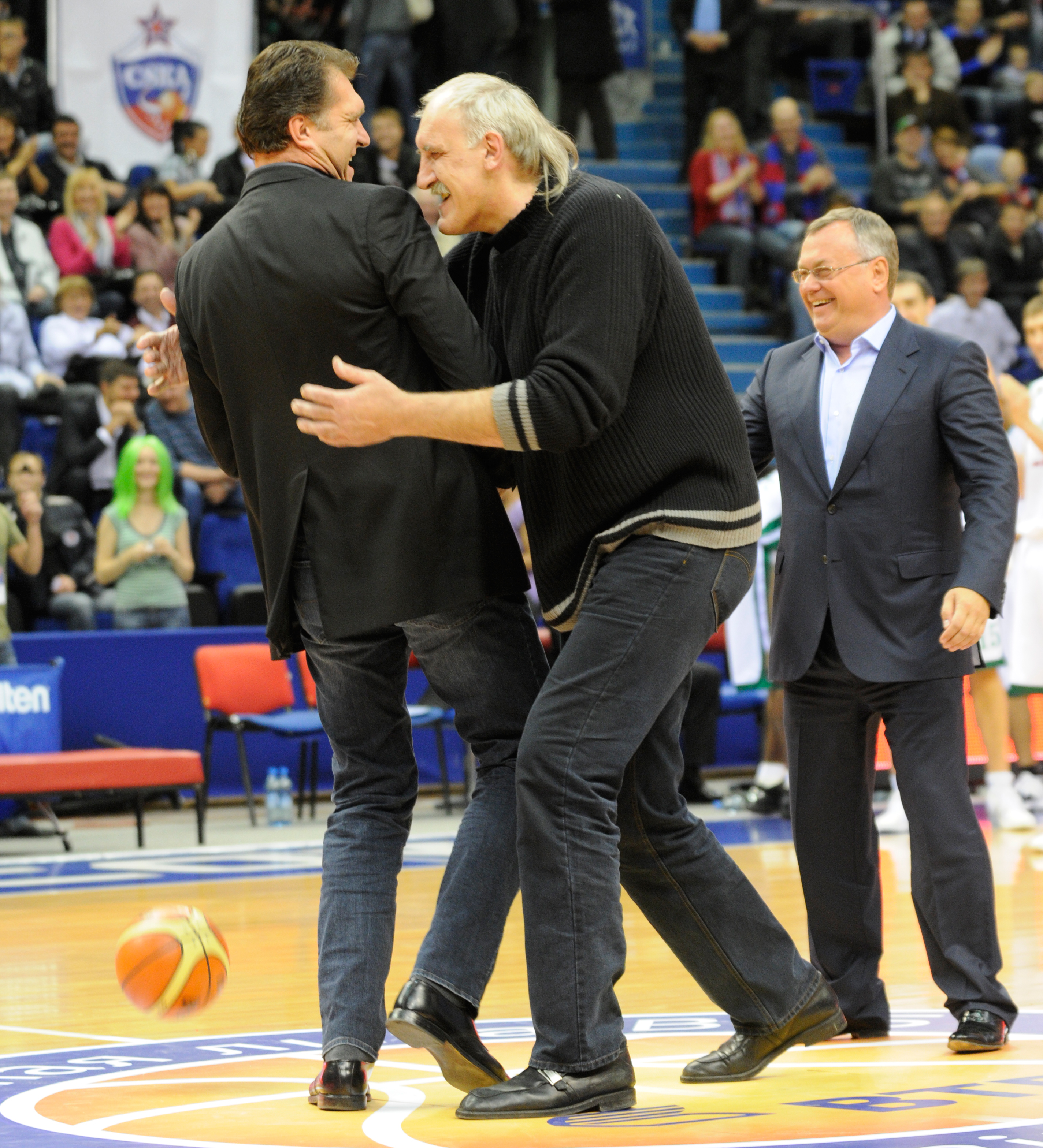
Sabonis and Tkachenko contested the ceremonial opening tip, with Andrey Kostin, President and Chairman of the VTB Bank Management Board, throwing the ball up.
There was a lot of pride on the line for both teams, but CSKA took advantage of its home court and star power to start the season with a 90-74 win over Zalgiris.
Regular season
The very first game of the season was actually held in Riga, where VEF hosted UNICS, with Kazan pulling out a hard-fought 76-72 victory. There was one upset in the first round. Sergio Scariolo’s Khimki squad led by double digits on the road against Donetsk, but couldn’t hold on, dropping a 70-69 decision to the plucky Ukrainians.
The second round showed the balance of power in the new league. UNICS defeated Donetsk, while CSKA took care of business against Azovmash. In the other two games, Zalgiris and Khimki won at home over Kalev and VEF, respectively. These four teams would ultimately finish in the top spots and advance to the final four…
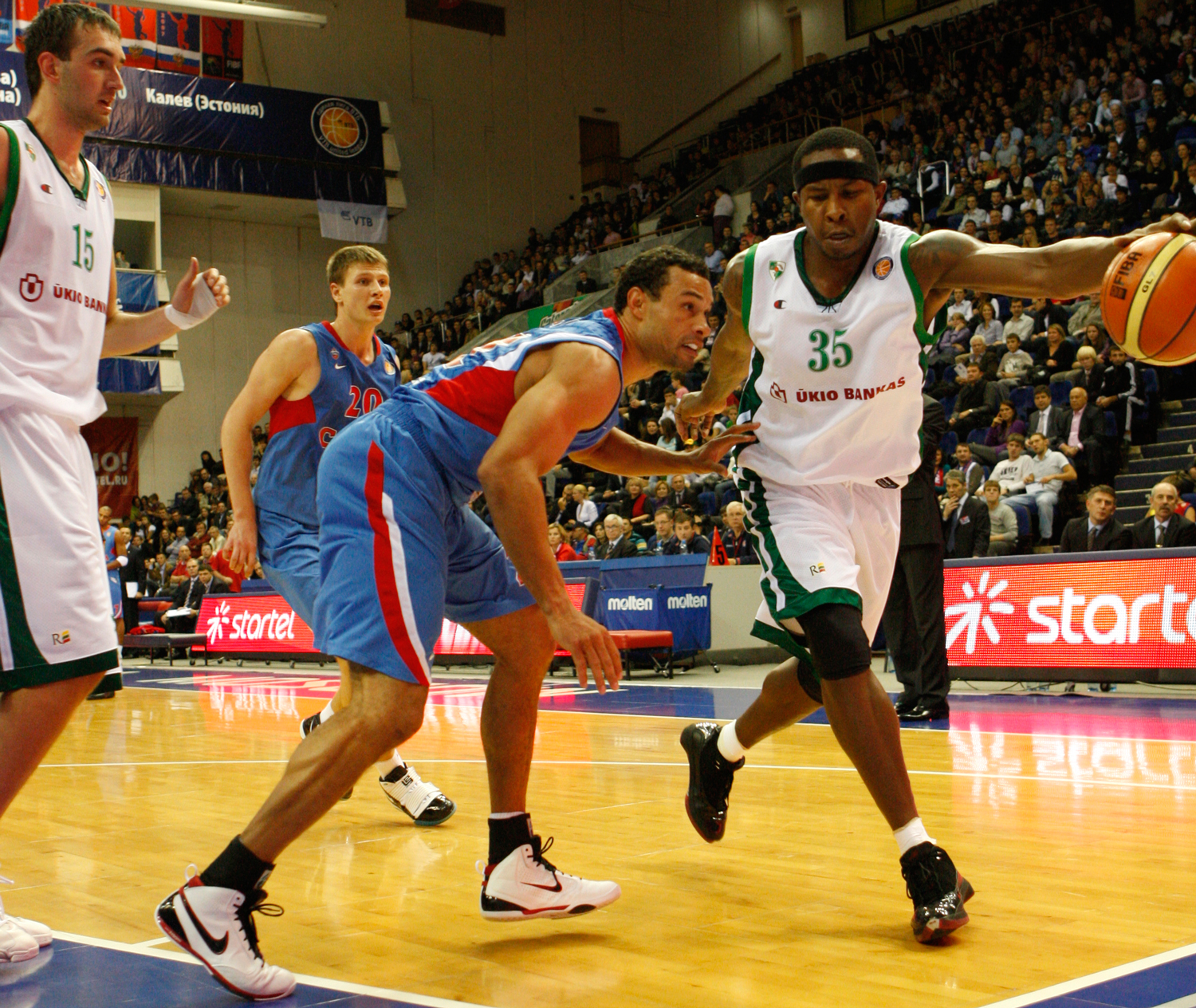
While CSKA, Zalgiris and UNICS cruised through the regular season with 5-1 records, the battle for 2nd place in Group A was much more competitive. Khimki lost again in round three (this time to UNICS, 82-69) to allow Donetsk to move into 2nd place. Azovmash was also 1-2, though head coach Rimas Girskis resigned prior to round four, the league’s first change at the head coaching position. Round four featured a showdown between Khimki and Donetsk. The Yellow-Blues stayed composed despite a poor start and eventually pulled away for a 78-68 victory. Zalgiris also took revenge in Kaunas, defeating CSKA 67-63 in front of a big crowd.
CSKA, UNICS, Khimki and Zalgiris each won in round five, clinching spots in the Final Four. Khimki was helped by Donetsk’s loss in Kazan. With Ramunas Butautas losing his job a few days before the game against UNICS, the Ukrainian club struggled to compete on the road and was eliminated from postseason contention.
Surprise
Donetsk. There were four favorites from the very beginning–CSKA, UNICS, Khimki and Zalgiris–and they ultimately advanced to the Final Four. Donetsk was in the same group as UNICS and Khimki and managed to challenge Moscow Region for the final postseason berth. Donetsk’s shocking win over Keith Langford, Paulius Jankunas, Timofey Mozvgov and Carlos Cabesas in round one gave them an early lead in the standings, though the Ukrainians lost the following week to UNICS. Nonetheless, Artur Drozdov and co. left a positive impression with their performance in the regular season.
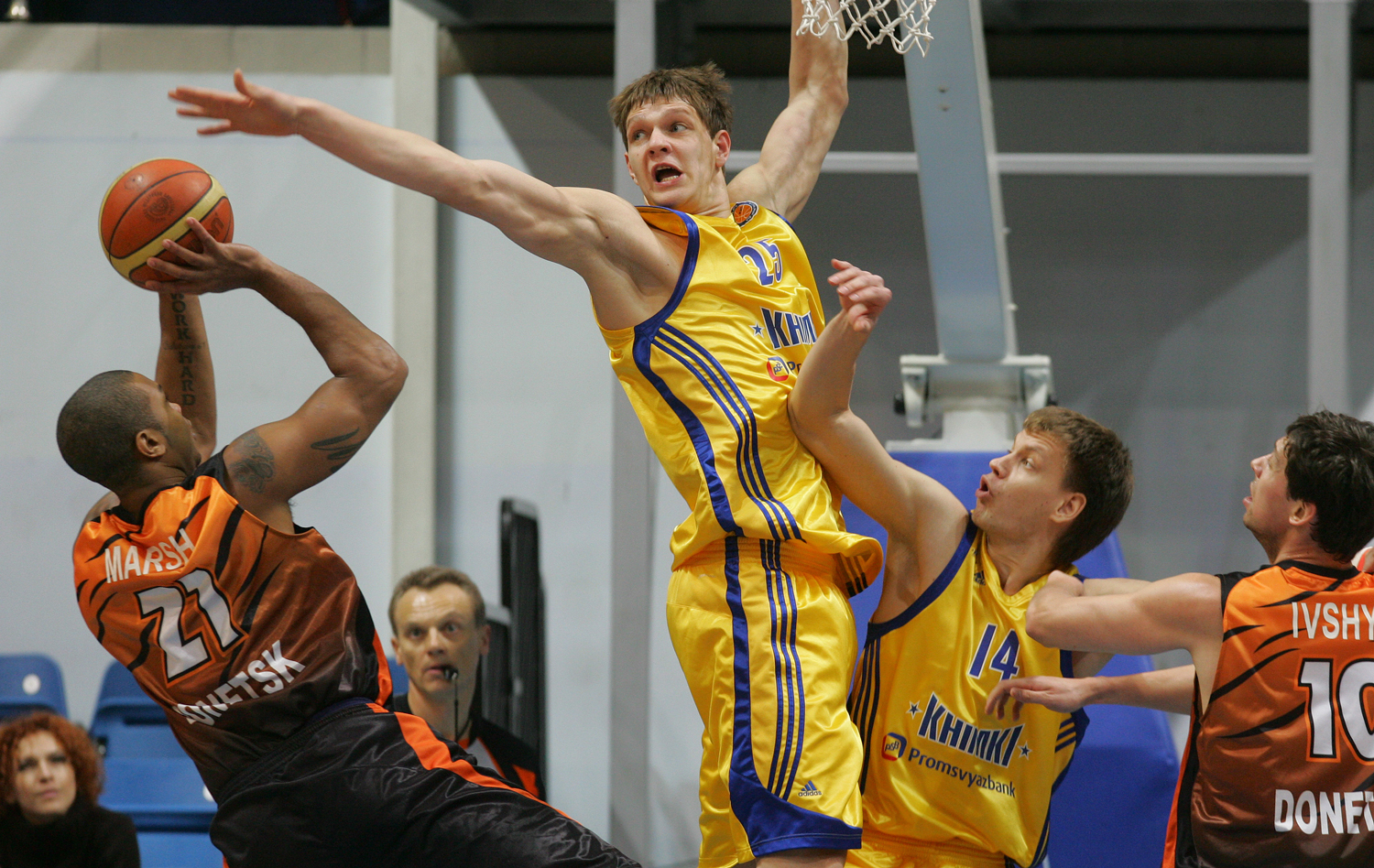
Final Four
The Final Four was held in Kaunas at the legendary Sporthalle and included an exciting opening ceremony, sellout crowds and thrilling competition.
Each of the Final Four participants–Zalgiris, UNICS, Khimki and CSKA–were legitimate championship contenders. The first semifinal between CSKA and Khimki more than lived up to expectations as Khimki seized an 11-point lead in the second half before the Army Men stormed back to win 71-66 and book a spot in the final.
The second semifinal between UNICS and Zalgiris was just as entertaining. Kazan faced a hostile, boisterous Zalgiris crowd, but did not appear intimidated. Coached by former Zalgiris player Valdemaras Homicius, the Tatar club staved off early pressure from the Lithuanians, took the lead and enjoyed a 75-65 victory.
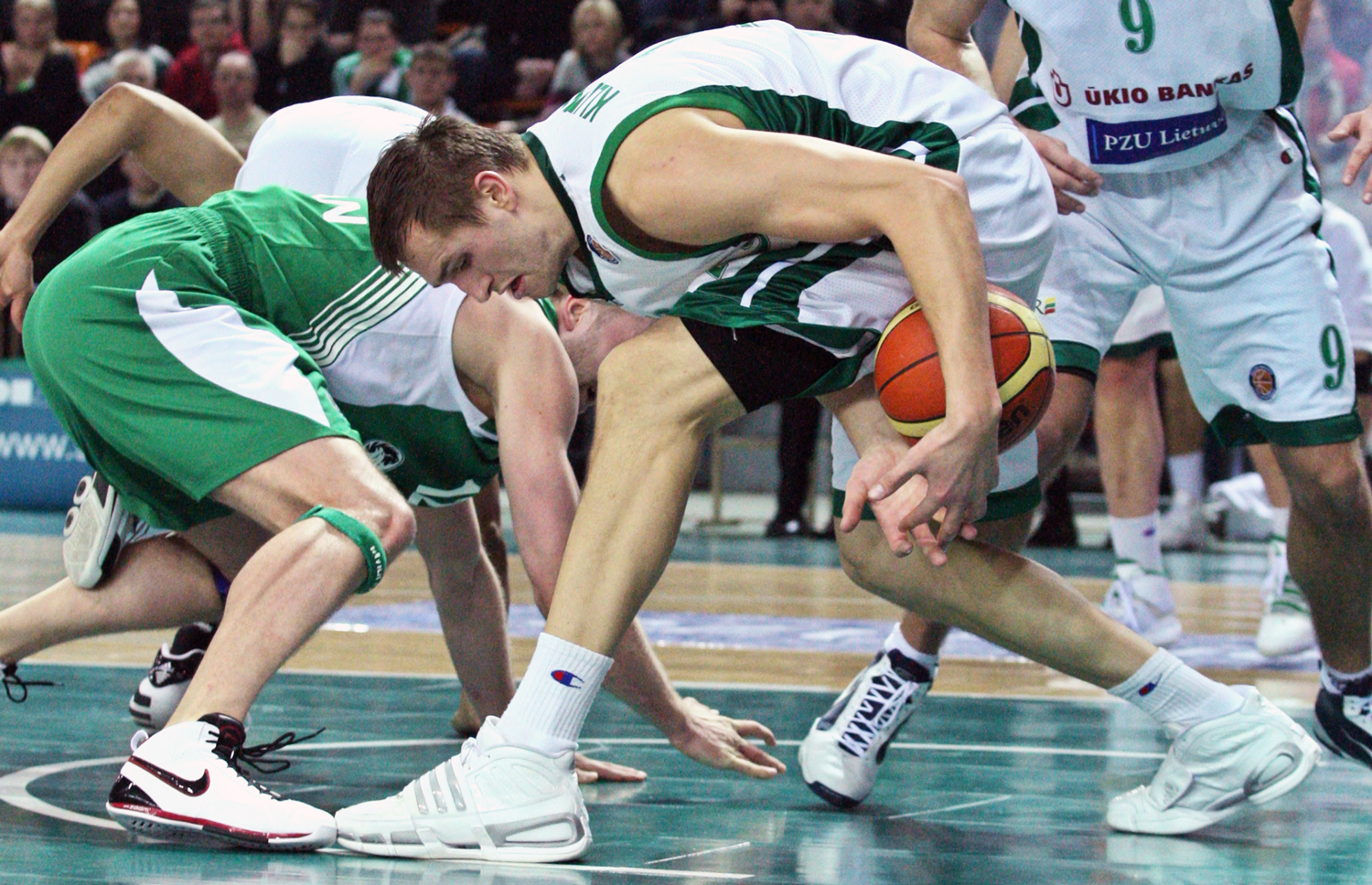
The final day of competition began with the 3rd place game between Zalgiris and Khimki. The Lithuanian fans did not appear too disappointed to be in the bronze medal game, selling out the Sporthalle once again. They were rewarded for their devotion as Zalgiris picked up a 78-72 victory. Next up was the final between CSKA and UNICS, the top two teams in the league all season.
The first half belonged to the Army Men as they led by 14 at the break. Kazan got back in it in the second half, cutting the deficit to four points with four minutes left to go. CSKA, however, would not be denied. Holden, the Final Four MVP, knocked down an unbelievable turnaround fadeaway, helping the Army Men pull away for the 66-55 victory and the first-ever VTB United League championship.
Stars
The fans saw plenty of stars during the VTB United League’s first season, including exciting young prospects and grizzled veterans.
J.R. Holden, the heart and soul of CSKA’s squad, ran the offense and led the Army Men to a championship with some huge baskets in big moment.s
Zalgiris’s Marcus Brown, perhaps the most individually talented player in the league, dazzled with his scoring ability and caused headaches for opponents around the league, averaging 15.3 points per game.
UNICS’s Marko Popovic made life miserable for the competition, finishing second in scoring behind Hasan Rizvic (16.7 ppg). He didn’t always fit into Kazan’s schemes on offense, but he won several games nearly single-handedly with his intense drive and competitive spirit.
Khimki witnessed the birth of a new star. Sergio Scariolo gave young Timofey Mozgov a chance and the center took full advantage, averaging 10.9 points and 5.5 rebounds per game in his first season on the pro level.
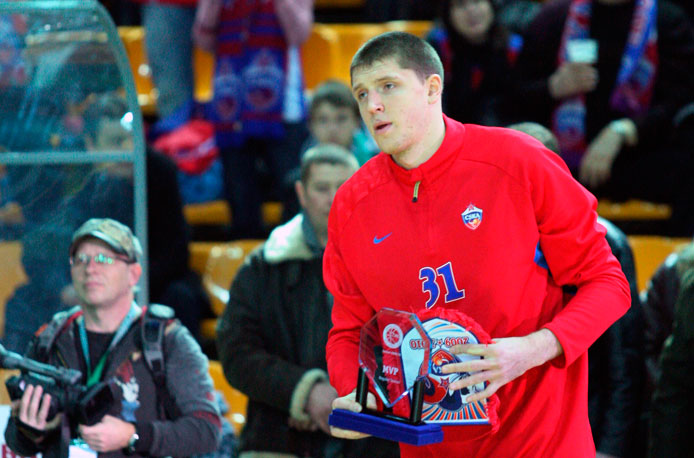
Meanwhile, the inimitable Viktor Khryapa, CSKA’s captain and leader, was everywhere on the court, stuffing the stat sheet with his brilliant all-around play.
Stat
37 points. Zalgiris guard Marcus Brown put up a league-best 37 points against Azovmash during the regular season. Five years later, only two players have scored more than Brown in a single game!

Highlight
The biggest highlight of season one was that the competition was organized and contested at a high level and showed so much promise for the future. The organizers did a tremendous amount of work, laying the foundation for the league’s development. Everyone that took part in the project deserved credit. The Final Four trophy ceremony in Kaunas featured many highly respected guests, including Sergey Ivanov and local legend Arvydas Sabonis.

– Personally, I’m very happy that this competition exists, – Sabonis said after the conclusion of the first VTB United League season. – I hope that the league has a good future and that we will get together more often. Zalgiris needs these games against strong Russian clubs. They are an excellent opportunity for the youth, not to mention the interest from the fans, which we saw proof of over the past few days in Kaunas.
Video
Final standings

2010-11 Season. Kurtinaitis came, saw and conquered!
During the league’s second season, the competition expanded to 12 teams from 8 countries and featured plenty of excitement, including a breakout performance from Azovmash and regular season MVP Ramel Curry, coaching changes at the top clubs, a thrilling Final Four in Kazan and a championship for Khimki under new head coach Rimas Kurtinaitis.
Back Story
The 2008 Promo-Cup and debut 2009-10 season lived up to expectations. The new competition was a success and league organizers looked to build on that momentum in 2010-11.
“I’m very happy that the VTB United League project continues to progress and develop. I’ll start with the most important and exciting news for league participants: the league budget will increase significantly, totaling 115 million rubles in the upcoming season. 65 million rubles will be provided by our title sponsor, VTB Bank, while the rest will come from other partners. In addition, as we are running a professional commercial competition, VTB United League clubs will make good money,” said league founder Sergey Ivanov prior to the start of the 2010-11 season.
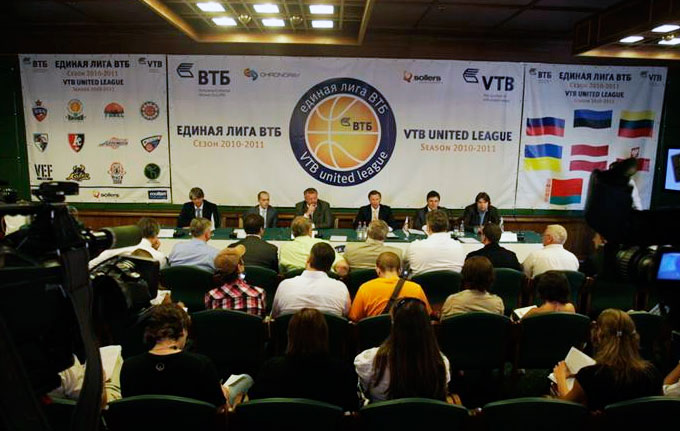
Format and Participants
The 2010-11 season was the second in VTB United League history. Compared to its debut season, the competition expanded its borders (from 5 to 8 countries) and number of participants (from 8 to 12 teams). Russia had the biggest contingent (CSKA, Khimki, UNICS), followed by Ukraine (Azovmash, Dnepr) and Lithuania (Zalgiris, Lietuvos Rytas). Latvia (VEF), Estonia (Kalev), Belarus (Minsk-2006), Poland (Asseco Prokom) and Finland (Honka) each had one club.
During the regular season, the teams were divided into two groups: Group A (CSKA, UNICS, Lietuvos Rytas, Minsk, Dnepr, Honka) and Group B (Khimki, Azovmash, Zalgiris, Prokom, VEF, Kalev). The playoffs once again featured a Final Four, with the top two teams from each group advancing to the postseason after a 10-game regular season.
Regular Season
The league’s second season kicked off at the USH CSKA with a laser show and dance performance by the CSKA dance team set to the VTB United League anthem. The game featured CSKA vs. Lietuvos Rytas, with the reigning champions pulling away in the 4th quarter after a hard-fought opening 30 minutes.

In a clash between new clubs, Dnepr defeated Honka in overtime in Week 1. In Tallinn, Kalev lost a heartbreaker to VEF Riga in the final seconds, while Ukrainian champs Azovmash held off Polish champs Prokom in Mariupol.
Despite the exciting start, the regular season standings proved a bit more predictable. With four Final Four berths up for grabs, only Group B featured a close race for second. Having started with a win over the Euroleague quarterfinalists, Azovmash continued its fine form throughout the regular season. Thanks to a clean sweep against 2010 bronze medalists Zalgiris, the Ukrainians squeaked out the final playoff berth. The two teams met in the final game of the regular season, where Azovmash rode an outstanding performance from Ramel Curry to defeat Zalgiris in Kaunas and clinch a spot in the Final Four!
Khimki finished in first place in Group B, ending on a nine-game winning streak after dropping the first contest to Zalgiris. CSKA and UNICS also posted 9-1 records in Group A, splitting road victories while maintaining perfect records against other teams in the group. Lietuvos Rytas finished with a winning record in its debut season, but could not slow down the two powerhouses.
Surprise
Azovmash. Mariupol won just two games in its debut season and did not contend for a postseason berth. That changed in 2010-11. Azovmash went 4-0 against Euroleague clubs Prokom and Zalgiris, clinching a berth in the Final Four with a victory over Zalgiris in Kaunas at the legendary Sporthalle. The Lions’ dizzying rise to the top demonstrated the unpredictability of the new competition.

Recurring Theme
Coaching changes at the league’s top clubs were the recurring theme in 2010-11. CSKA, Zalgiris and Khimki each parted ways with their head coach in the first half of the season, appointed interim coaches, and finally hired new head coaches 1-3 months later.
It all started with Dusko Vujosevic, who was forced to leave CSKA in November 2010. Six losses in 14 games, including five in the Euroleague was not acceptable to CSKA’s front office. 42-year-old Russian Dmitry Shakulin took over temporarily. Zalgiris and Khimki followed CSKA’s example in December. Among the reasons for Kaunas’s decision to part ways with Aco Petrovic was a loss to Azovmash. Sports director Rimantas Grigas became the interim head coach at Zalgiris. Finally, Khimki announced Sergio Scolario’s resignation on December 21. The Italian had worked at the club for two years, but failed to achieve the desired results. Oleg Meleschenko was temporarily installed as head coach.

New head coaches weren’t appointed until 2011. In the middle of January, Elijas Zuros took over at Zalgiris, while Jonas Kazlauskas got the job at CSKA in late February. Rimas Kurtinaitis was installed at Khimki on March 16, one month before the Final Four. The legendary Lithuanian, a gold medal winner at the 1988 Seoul Olympics, joined Khimki from VEF, where he had led the team to three wins and established his reputation as a top-quality coach (among other accomplishments, Kurtinaitis helped Belarusian center Artsiom Parakhouski earn a name for himself in Europe while playing at VEF). The Lithuanian coach’s move to Khimki was seen as mutually beneficial, though few could have expected he would strike gold in his first month on the job.
Final Four
The final stage of the league’s second season was held in Kazan. In addition to hosting the competition, UNICS was riding high thanks to victory in the Eurocup Final Four a few days earlier.
CSKA and Azovmash met in the first semifinal. After the failed experiment with Vujosevic and a changing of the guard, the Army Men were no longer the ruthless machine that had decimated opponents for eight years, while Azovmash had plenty of confidence thanks to wins over Zalgiris and Prokom. But the Ukrainians only stayed in the game for the first half. Led by the experienced J.R. Holden, Viktor Khryapa, Matjaz Smodis and Ramunas Siskauskas, CSKA’s organization and focus was too much for Mariupol’s more disjointed offense. CSKA advanced to the final game with a 69-57 victory.
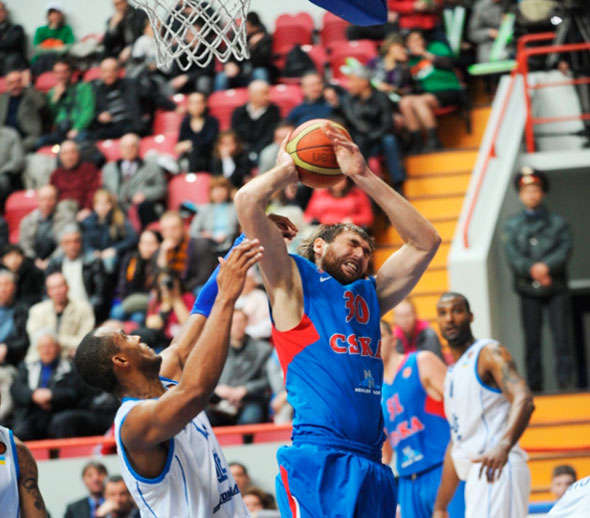
The second semifinal was much closer. UNICS had four ex-Khimki players on its roster, including three regulars: Maciej Lampe, Kelly McCarty and Vladimir Veremeenko. Khimki, meanwhile, boasted former UNICS star Kresimir Loncar on its roster. There was little either team could do to surprise its opponent. UNICS opened on an 8-0 run, but Khimki quickly got back in the game, before gradually taking control in the second helf. Vitaly Fridzon led the visitors with 27 points, helping Khimki pull out an 84-78 victory.
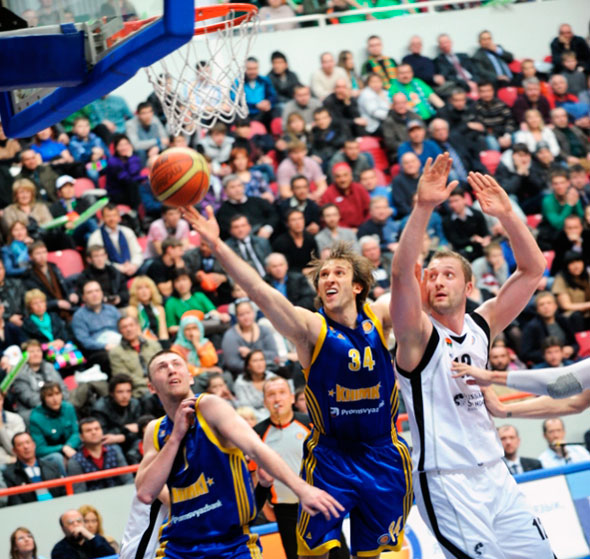
The Final Four in Kazan was extremely well run and included several fun events beyond the official games. The first-ever Friends of Basketball Game was held, featuring journalists vs. fans, coached by former stars Valery Tikhonenko and Anatoly Myshkin. The Final Four Open street basketball tournament was also a big hit. More than 100 teams took part in the competition, which was held near Kazan’s Basket Hall.

The bronze medal in the Final Four went to UNICS, which simply refused to lose twice in a row at home. The White-Greens bounced back quickly from the semifinal disappointment, crushing Azovmash, 95-75.
That set up the final game: Khimki vs. CSKA.
Rimas Kurtinaitis’s men dominated the opening minutes. Fridzon picked up where he left off in the semis, leading Khimki to a 14-point second-quarter lead. In response, CSKA dropped its zone defense for man-to-man, plus made substitutions. The momentum quickly shifted: a 16-0 run gave CSKA the 27-25 lead!
After halftime, neither team had much success building a lead until six straight points from Loncar put Khimki on top entering the final minutes. The game finished NBA-style, with CSKA committing several tactical fouls and both teams calling multiple timeouts.
With one second left on the clock, Jamont Gordon gave CSKA hope, drilling a 3-pointer to pull his club within a point, 65-64. The Army Men fouled immediately and Travis Hansen missed the second freebie, but CSKA didn’t have much time to get a shot off. The ball ended up in Ramunas Siskauskas’s hands, whose half-court heave proved off the mark. Khimki wins the VTB United League championship!
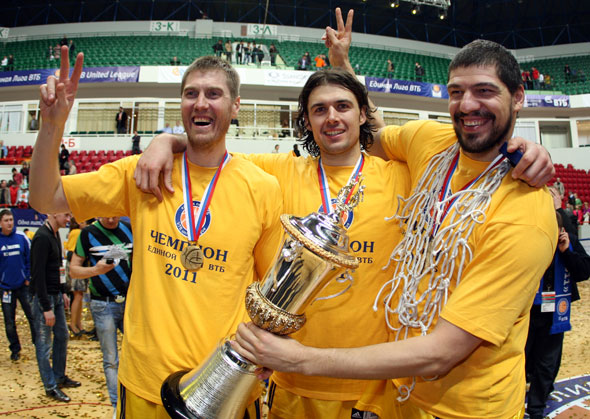
Stars
Azovmash was the biggest surprise of the season with much of the credit going to Ramel Curry. His terrific play in the regular season (18.4 points, 4.6 rebounds, 2.8 assists, 2.7 steals and an efficiency rating of 20.4) earned the American the MVP award.

UNICS’s Marko Popovic continued to be one of the league’s most dangerous players. He led the league in assists and was third in scoring. Maciej Lampe wreaked havoc in the frontcourt for UNICS, finishing in the top five for efficiency rating. His game against Honka during the regular season was especially memorable: 36 points, 15 rebounds and an efficiency rating of 46!
Trajan Langdon retired after the 2010-11 season, but the experienced veteran was an example in the locker room and on the court. The American finished the year as CSKA’s top 3-point shooter.
Dnepr only won two games, but leader Steven Burtt was very impressive. The guard caused problems for opposing defenses, finishing second in scoring average and assists.
Martynas Gecevicius was one of the league’s most dangerous perimeter shooters, averaging 55.8% from beyond the arc and 16.8 points per game, playing a big role in Lietuvos Rytas’s success.
Vitaly Fridzon was one of the biggest factors in Khimki’s triumph. The sharpshooter averaged just 22 minutes per game during the regular season, but he was unstoppable when it mattered most. Fridzon’s 27 points in the semifinals gave Khimki a win over UNICS, while 11 points and 7 rebounds in the final gave him the second-best efficiency rating on the team as well as the top +/- rating. For his efforts, Fridzon received the Final Four MVP.
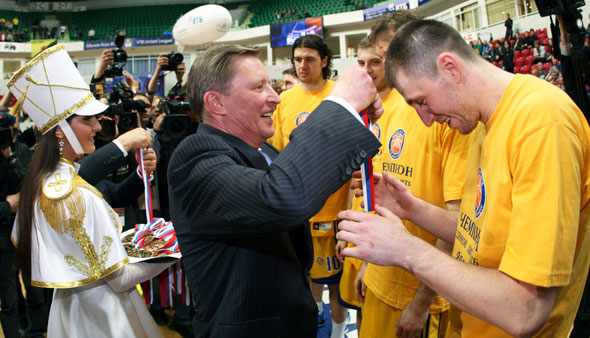
Stats
116. Lietuvos Rytas didn’t stop CSKA or UNICS from reaching the Final Four, but went out with a bang. The Lithuanians scored 116 points against Dnepr in the final game of the regular season, a record which would stand until the 2014-15 season.
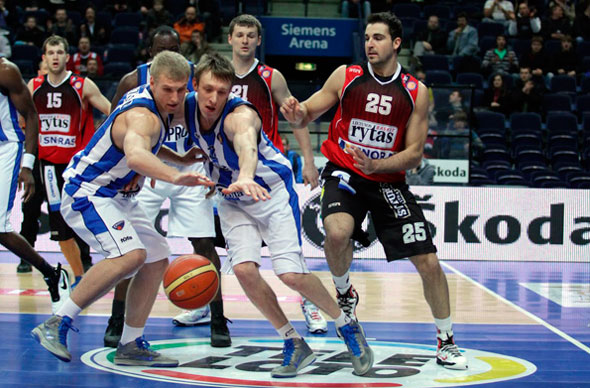
Event
Rimas Kurtinaitis took over in March, signing a contract for the rest of the season, with an option to extend one year. Khimki took a chance on him and Kurtinaitis responded, winning a championship in his first month on the job. Even an injury to Keith Langford and showdown vs. CSKA in the final could not stop the Moscow Region team.
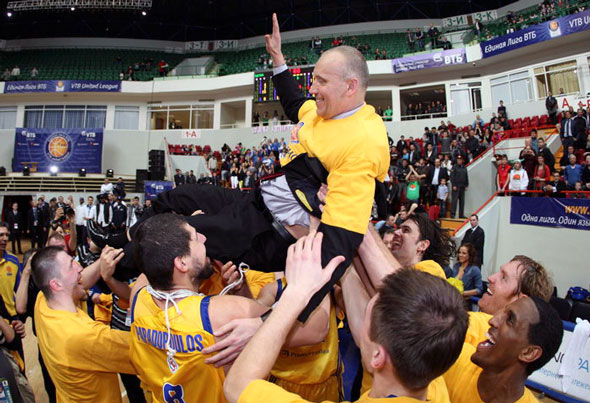
Khimki remains the only team to stop the Army Men in the VTB United League. As for Kurtinaitis, he continues to thrive at Khimki, now entering his fifth full season.
Video
Final Standings and Results
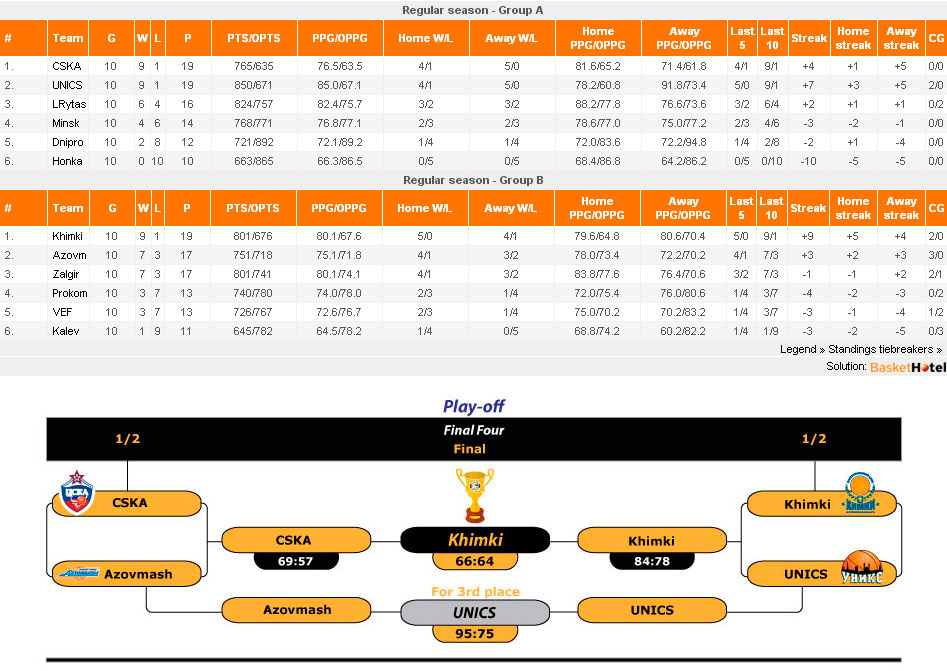
The league expanded to 18 clubs and 9 countries in 2011 and added a preseason qualifying tournament. Several rookie clubs took the league by storm and the battle for the final playoff spots was vicious. The season concluded with the league’s first playoff bracket and a thrilling Final Four in Vilnius. Andrei Kirilenko made a triumphant return to Russia, Jonas Valanciunas, Patrick Beverley and Timofey Mozgov drew the attention of NBA scouts, and CSKA captured another title in the VTB United League’s third season.
Everything was bigger in 2011 as the VTB United League made the anticipated jump from 12 to 18 clubs. As shared by president Sergey Ivanov at the end of the 2010-11 season, in addition to increased interest from clubs in Eastern Europe and Kazakhstan, the league was also in talks to combine with the Professional Basketball League the following season:
“PBL clubs unanimously voted to begin working on uniting with the VTB United League in 2012 at the end of the season. I’ve taken that request into consideration. We’ll look at how realistic it is. We are looking at expanding the league to 18 teams. Two groups of 9 teams, a round-robin schedule, playoffs and Final Four.”
These plans to massively expand the league became reality. In comparison to the second season, the league’s territory had expanded as well as the number of participants. There were even more clubs than the schedule could accommodate, prompting the organization of a qualifying tournament, which was held from September 27 to October 1 in Siauliai, Lithuania. Six contenders from five countries (Enisey, Russia; Krasnye Krylia, Russia; Dnepr, Ukraine; Anvil, Poland; Siauliai, Lithuania; Torpan Poyat, Finland) battled for two regular season berths. In the end, both Russian clubs came out on top: Krasnye Krylia Samara and Enisey Krasnoyarsk.
The following six clubs also joined the league in 2011: Lokomotiv-Kuban (Russia), Nizhny Novgorod (Russia), Spartak (Russia), Nymburk (Czech Republic), Astana (Kazakhstan) and Budivelnik (Ukraine). The decision to include these clubs and change the competition format (the Final Four was now preceded by two playoff rounds) was made at the league board meeting in Riga. The gathering also featured the regular season draw, which divided the clubs into two groups.
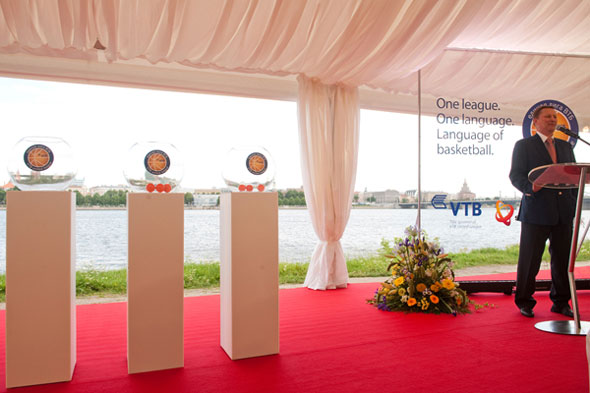
Thus, 18 clubs from 9 countries opened the VTB United League’s third season. Russia had the biggest contingent (Khimki, UNICS, Nizhny Novgorod, CSKA, Spartak, Lokomotiv-Kuban, Krasnye Krylia and Enisey), followed by Ukraine (Azovmash, Budivelnik) and Lithuania (Zalgiris, Lietuvos Rytas). Latvia (VEF), Estonia (Kalev), Belarus (Minsk-2006), Poland (Asseco Prokom), Kazakhstan (Astana) and Czech Republic (Nymburk) each had one club.
The teams were divided into Group A (UNICS, Khimki, Zalgiris, Nizhny Novgorod, VEF, Krasnye Krylia, Astana, Budivelnik, Kalev) and Group B (CSKA, Spartak, Lietuvos Rytas, Lokomotiv-Kuban, Prokom, Azovmash, Nymburk, Enisey, Minsk-2006) during the regular season. The top four teams from both groups advanced to the postseason. The first-place team in each group advanced directly to the Final Four, while the two remaining berths were decided by the league’s first ever playoff bracket. Teams in third and fourth place met in the round of 16, with the winners advancing to play the second-place teams in the quarterfinals. Each series was best-of-three.
Regular Season
The season’s official opening game was held in Krasnodar, featuring Lokomotiv-Kuban and Lietuvos Rytas. The game was also the first to be played at Lokomotiv’s brand-new Basket Hall, though it ended in disappointing fashion for the hosts, who dropped a 78-71 decision. Andrei Kirilenko’s return to CSKA also made headlines. After 10 years in America, the Russian legend decided to return home due to the prolonged NBA lockout. AK-47 made his debut against Spartak St. Petersburg, where he had begun his professional career. The game stirred up enormous interest and ended with a sensational loss for Kirilenko and Co. (83-81 in favor of Spartak, led by American point guard Patrick Beverley).
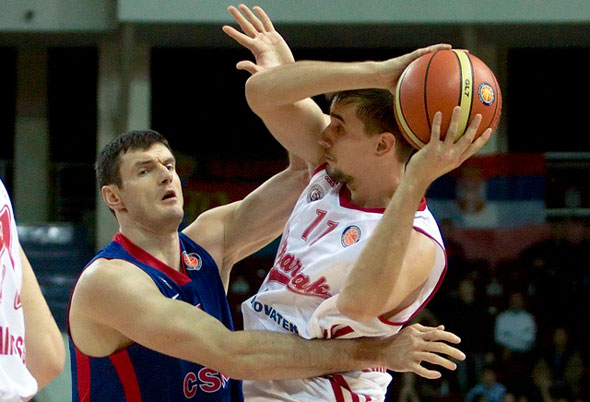
The decision to expand the league proved an excellent one. The fans enjoyed an excellent regular season with lots of interesting games and heated competition. The league’s rookie clubs especially impressed. Nizhny Novgorod finished fourth in Group A, while both Lokomotiv-Kuban (4th) and Spartak (2nd) reached the postseason in Group B.
There were familiar faces at the top. CSKA and UNICS continued to dominate. The two clubs had finished with identical records in the two prior seasons (5-1 and 9-1), before recording 14-2 marks in the league’s third season to advance directly to the Final Four. Reigning champs Khimki took second place in Group A, followed by Zalgiris. A December game between the two clubs in Khimki was Timofey Mozgov’s last in the Yellow-Blue, with the Russian center moving on to the NBA. He left on a winning note, leading Khimki to an 83-72 victory. The second game between these two clubs was another highlight of the regular season. After 40 thrilling minutes of regulation, Sonny Weems gave the Lithuanian champs a heart-stopping 95-94 victory with a dunk at the buzzer.
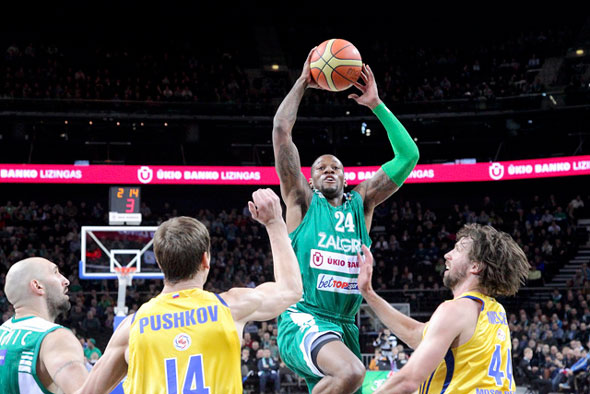
Lithuania’s Lietuvos Rytas joined three Russian clubs—CSKA, Spartak and Loko—in the top four in Group B. The battle for the playoffs was heated as Prokom, Azovmash and Nymburk finished with 8-8 records, one game behind Lokomotiv.
Surprise
Nymburk. The Czech newcomers opened the season with five losses, but refused to throw in the towel. The Lions responded with a six-game winning streak and were in contention for a postseason berth until the final week of the season. Most impressively, Nymburk was one of only two teams to defeat CSKA during the regular season.
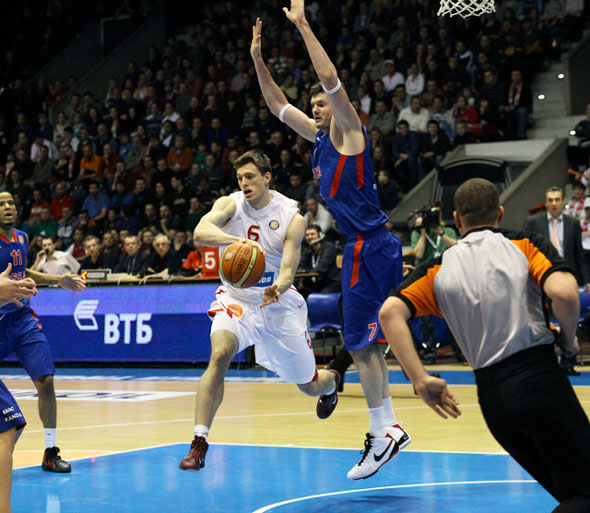
Undefeated since the season-opening loss in St. Petersburg, the Army powerhouse got rocked in Padrubice by Ronen Ginzburg’s Cinderella squad. Nymburk cruised to a 19-point victory, a shocking defeat for CSKA, even if they were missing several team leaders.
Headline
Andrei Kirilenko’s return. After 10 years in the NBA, Kirilenko put on a CSKA jersey and played a full season in Russia (choosing not to leave in December following the end of the lockout). The King returned to his homeland to win a championship and reward his loyal fans.
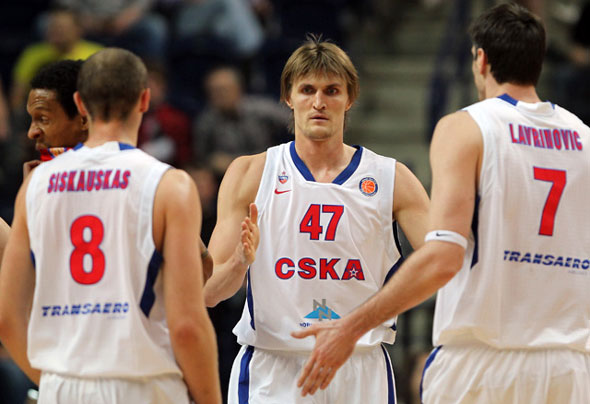
AK-47 fit in quickly at CSKA, establishing himself as a team leader. In addition to donating his entire salary to charity, the Russian national team star won numerous awards at the end of the season (including top European player per FIBA-Europe and Italy’s La Gazzetta dello Sport). He did more than just win games and trophies, however, also drawing fans and increased attention to the VTB United League thanks to his immense popularity.
Playoffs
The last two participants in the Final Four were decided by a two-staged playoff. Lietuvos Rytas and Lokomotiv-Kuban came out on top, after finishing third and fourth, respectively, during the regular season. Lokomotiv-Kuban didn’t lose a single game, sweeping Zalgiris and Spartak. Lietuvos Rytas had a more difficult path. While Vilnius eliminated Nizhny Novgorod in the first round, 2-0, the Lithuanians were then matched up against reigning league and Eurocup champs Khimki. Nonetheless, Rytas overcame Moscow Region and former head coach Rimas Kurtinaitis in three games, ensuring that there would not be an all-Russian Final Four.
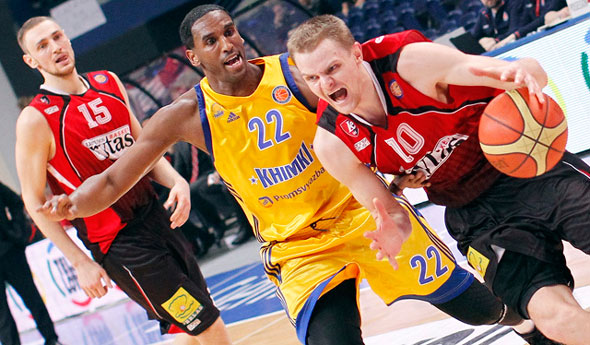
The Final Four was held in Vilnius at the Siemens Arena. Game 1 was an instant classic as UNICS and Lokomotiv-Kuban needed all 40 minutes to decide who would advance to the championship game. Loko’s 3-point shooting led by Roderick Blackney (5-5 in the first three quarters) allowed Krasnodar to take a four-point lead with 10 minutes to go.
But Henry Domercant would not be stopped in the 4th quarter, scoring 17 of Rytas’s 25 points. Krasnodar led by one, 86-85, after knocking down a ‘3’ with 6.8 seconds on the clock, before Domercant shook off Sergey Bykov at the other end and drained a mid-range jumper with two seconds to play! K.C. Rivers missed a desperation heave at the buzzer, giving UNICS an 87-86 victory and berth in the final.
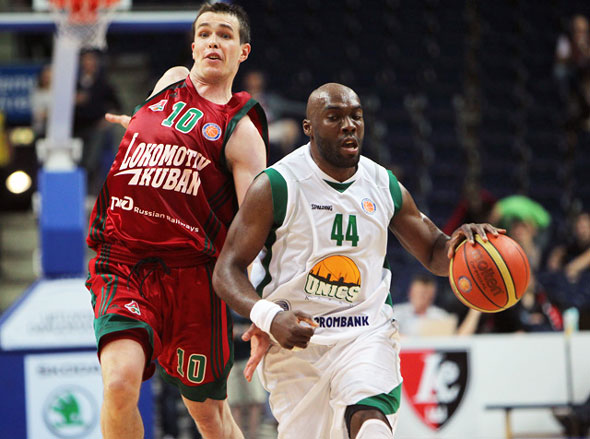
The second semifinal was preceded by the opening ceremony, which gave Lietuvos Rytas an extra boost of energy. The home team battled valiantly against CSKA and very nearly secured the upset, but Kirilenko would not be denied. The Russian forward drilled a ‘3’, knocked down two free throws, completed an ‘and-1’ and secured a key steal in the final seconds to help CSKA emerge with a 79-72 victory.
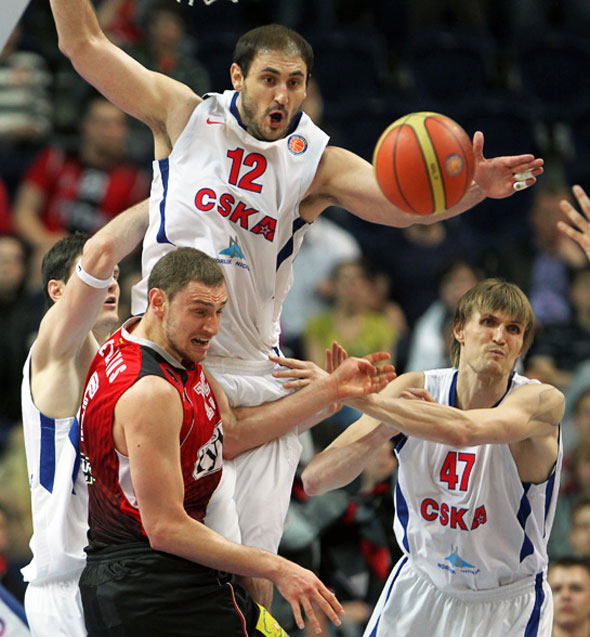
The Final Four also featured the league’s second Friends of Basketball exhibition. This time around, a team of Russian sports journalists faced off against their Lithuanian colleagues. Russia’s Sergei Elevich coached his countrymen, while Lithuania’s Tomas Pacesas paced the sideline for the home team. The more seasoned Lithuanians won in convincing fashion, securing a 22-10 victory.

A pattern had emerged in the first two Final Fours. Both times, the home team had been eliminated in the semifinals, before bouncing back to win the 3rd-place game the following day. Zalgiris did it in 2010 and UNICS followed suit in 2011. 2012 would prove no different as Lietuvos Rytas took the bronze with a 91-83 victory over the rookie club from Krasnodar.
That set the stage for the championship. CSKA had five Lithuanians on its roster and staff: head coach Jonas Kazlauskas, players Ramunas Siskauskas and Darjus Lavrinovic, conditioning coach Evaldas Kandratavicius and scout Benas Matkiavicius. The Army Men felt very comfortable in the Lithuanian capital as a result and opened the game on an 11-1 run. But UNICS coach Evgeny Pashutin had won the championship with CSKA in Kaunas two years before and knew the Army Men too well to let his team give up without a fight. Kazan bounced back, keeping CSKA within striking distance in the 2nd and 3rd quarters, though it would fail to make it exciting in the final minutes.
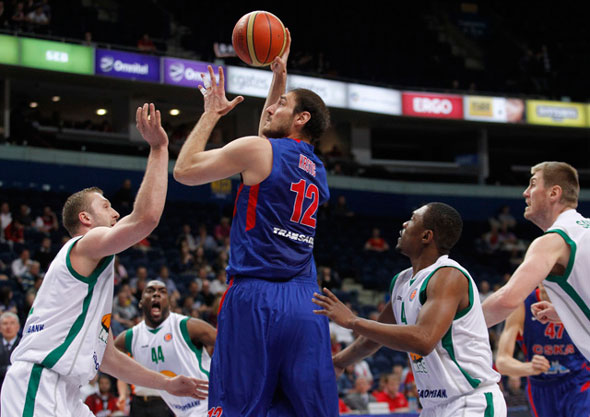
The Army Men opened the 4th quarter on a 9-1 run, erasing any remaining doubt as to the outcome. As the bench players started trying on the championship hats, CSKA secured a 74-62 win and regained the VTB United League crown.

Khimki did not defend its title, but impressed with an eight-game winning streak and the spectacular play of Kresimir Loncar. Despite averaging just 23 minutes per game, the Croat finished 2nd in efficiency rating and was a serious contender for MVP.
23-year-old Lietuvos Rytas center Jonas Valanciunas, selected 5th in the 2011 NBA Draft, proved one of the league’s most reliable, consistent performers and helped his club finish in 3rd place.
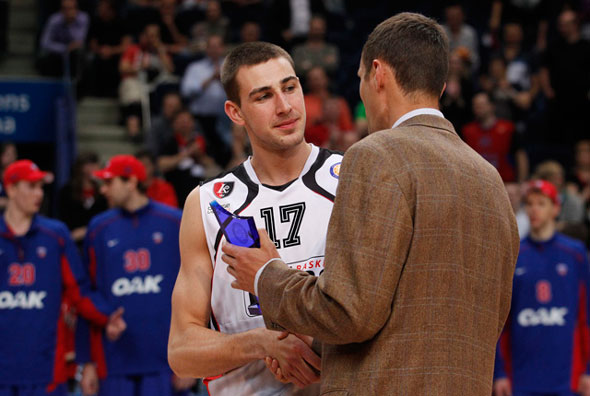
Spartak guard Patrick Beverley was another player who would move on to the NBA thanks to his brilliant play in the VTB United League. The club from St. Petersburg enjoyed a wonderful regular season, led by Beverley who finished among the league leaders in assists (4.4 per game) and efficiency rating (16.1 per game).
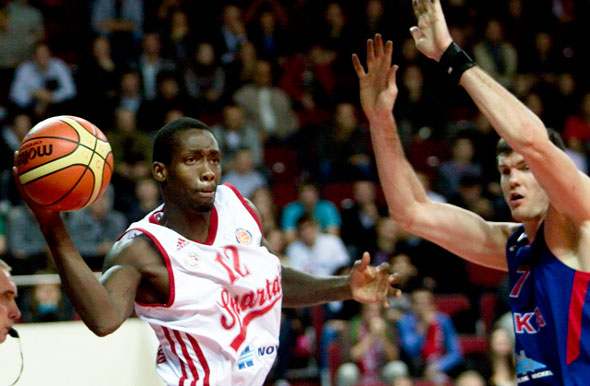
Nymburk was one of the biggest surprises of the regular season and Chester Simmons was the team’s unquestioned leader. Among his most impressive accomplishments were the season-best 35 points he dropped against Minsk-2006 and a cumulative 50 points scored against CSKA in two meetings.
Founded in 2011, Astana made a favorable impression in its debut season. The team was led by Rawle Marshall, who won the league’s scoring title, averaging 16.8 points per game.
Finally, Andrei Kirilenko. The greatest player in modern Russian basketball history, Kirilenko was terrific from start to finish. He led CSKA to the championship and earned two MVP’s (regular season and Final Four).
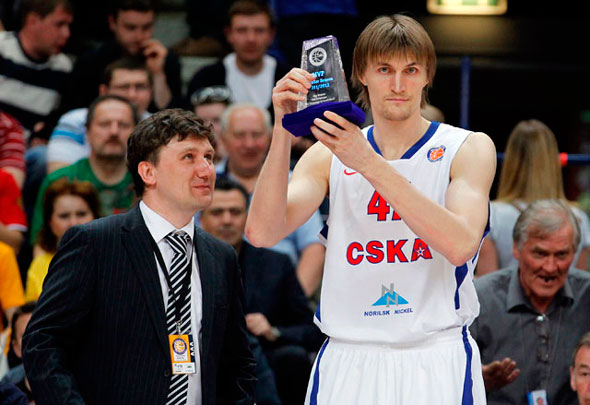
Pipeline
Several players from the VTB United League moved to the NBA during or following the conclusion of the season. In addition to Mozgov, Beverley and Valanciunas, Alexey Shved, DeJuan Blair, Donatas Matiejunas, Sonny Weems, Chris Quinn and Mickael Gelabale ended up in North America. Andrei Kirilenko also made his return to the NBA in 2012 following his golden season at CSKA.
Several attendance records were set during the 2011-12 season, with three of the league’s four-best attended games being played at Zalgiris Arena. The game between Zalgiris and Astana drew 13, 105 fans (second-most in league history behind the 15,812 fans that showed up in October 2012 for a game between CSKA and Zalgiris). Zalgiris and Krasnye Krylia drew 12,500, while Zalgiris – Khimki brought in 12,200.

38. Lietuvos Rytas crushed Minsk-2006 by a score of 112-86 in March. Vilnius scored 38 points in the final period, still a league record which has only been matched since (once by VEF and twice by Avtodor).
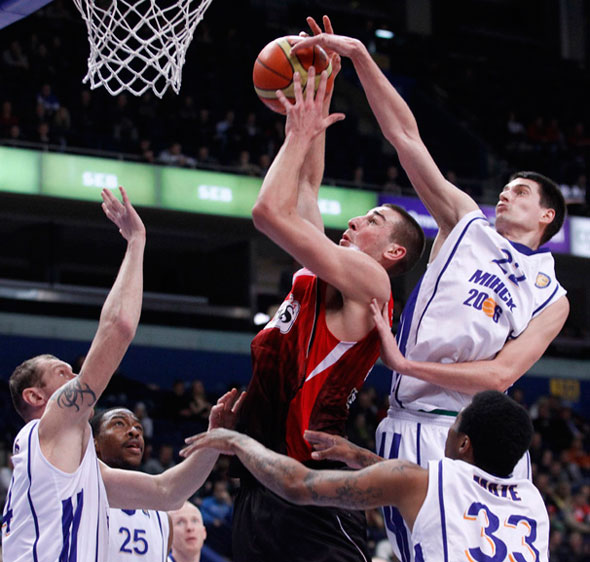
7. Aliaksei Trastsinetski of Minsk-2006 secured seven steals in a January game vs. CSKA, tying for the league record with Aaron Miles and Frederick House.
Final Results
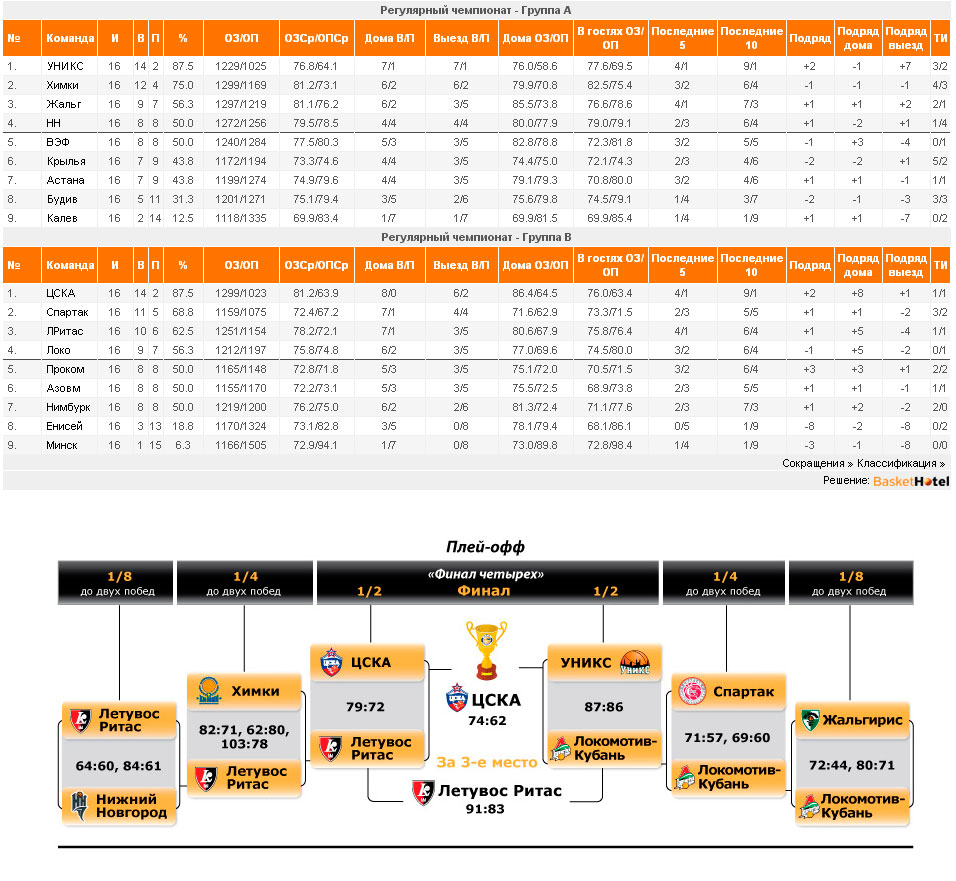
2012-13 Season. CSKA defends title
The league expanded to 20 teams in 2012 and introduced a new playoff format. Krasnye Krylia, Astana and VEF enjoyed breakout seasons; the league witnessed its first triple-double; while E.J. Rowland won the MVP and Sergey Karasev picked up the Young Player of the Year award. Other highlights included a legends game, new attendance record, regular season drama, Lokomotiv-Kuban’s first-ever finals berth and CSKA repeating as league champs.
Back Story
The geography of the VTB United League expanded once again in 2012, as well as the number of clubs. New clubs were approved at the league board meeting in Tallinn, while a new playoff format was introduced with the Final Four replaced by best-of-five series.
“This season will include eight reigning domestic champions and seven Euroleague teams, if you include the Euroleague’s qualifying tournament. The level of our league is higher than any other domestic league. Another bonus is that we have the best insurance, even compared to the Euroleague. The league also takes care of all officiating expenses. Finally, in addition to the prestigious title of champion, a berth in the 2013-14 Euroleague qualifying tournament will be at stake this season,” noted league president Sergey Ivanov during the preseason press conference in Tallinn.
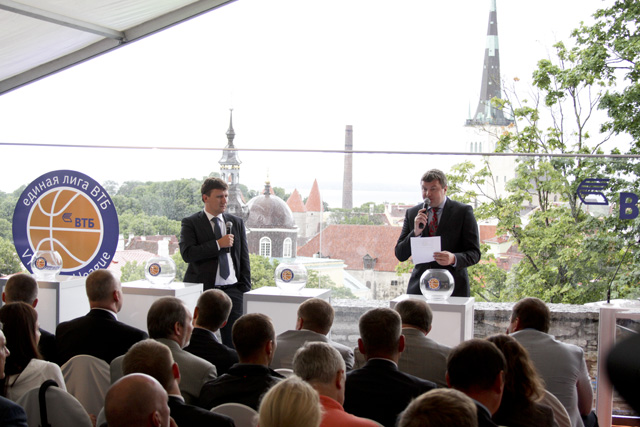
Format and Participants
The new format featured an 18-game schedule with 20 teams divided into two groups (two games, home and away, against each group opponent). The new members of the league were Triumph (Russia), Turow (Poland), Neptunas (Lithuania) and Donetsk (Ukraine). The number of countries remained the same at nine.
Following the draw in Tallinn, the teams were divded into the following groups:
Group A: UNICS (Russia), Khimki (Russia), Spartak (Russia), Krasnye Krylia (Russia), Lietuvos Rytas (Lithuania), Astana (Kazakhstan), Azovmash (Ukraine), Kalev (Estonia), Turow (Poland), Donetsk (Ukraine).
Group B: Tsmoki-Minsk (Belarus), CSKA (Russia), Lokomotiv-Kuban (Russia), Enisey (Russia), Triumph (Russia), Nizhny Novgorod (Russia), Zalgiris (Lithuania), Neptunas (Lithuania), Nymburk (Czech Republic), VEF (Latvia).
Six teams advanced to the playoffs from each group with the top two advancing directly to the quarterfinals, while the remaining clubs started in the first round.
Expanding the playoffs was the biggest change of the season. The league first introduced best-of-three series in 2012, but only for the two rounds preceding the Final Four. Now the VTB United League was ready to go all in for the postseason.
Regular Season
The VTB United League’s fourth season opened in thrilling fashion in Astana, as the home team knocked off reigning bronze medalists Lietuvos Rytas, 72-71. In the first game in Group B, Zalgiris defeated Lokomotiv-Kuban in Krasnodar, 78-70, taking revenge for its elimination in the 2012 playoffs.
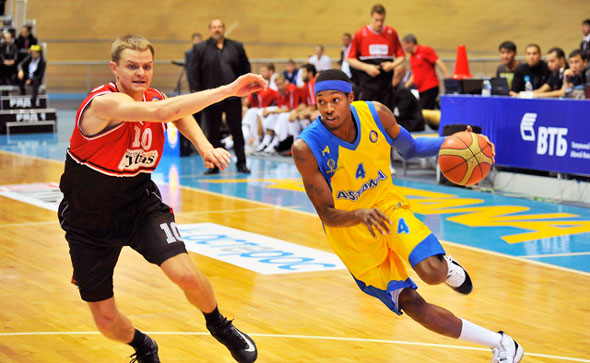
Group A was expected to be the “group of death” entering the season, while bitter rivals CSKA and Zalgiris headlined Group B.
The first game between the two legendary clubs came in Week 4 in Kaunas. Cheered on by 15,000+ fans at Kaunas Arena, the Lithuanians knocked off the league’s top favorite, 76-66, and set the league’s single game attendance record (15,812)!
Zalgiris went on to sweep the regular season series against CSKA, defeating the Army Men in Moscow, 74-68.
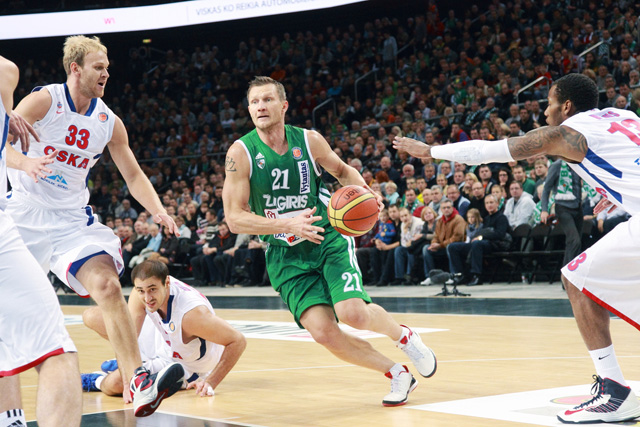
Overall, Zalgiris lost just twice in the regular season, cruising to a 16-2 record to finish in 1st place (CSKA went 15-3). Lokomotiv-Kuban took 3rd place with a 12-6 mark, while VEF enjoyed its first winning season, going 11-7 to reach the postseason. The two final playoff berths went to Nizhny Novgorod (10-8) and Triumph (9-9). 7th-place Enisey finished three games out with a 6-12 record.
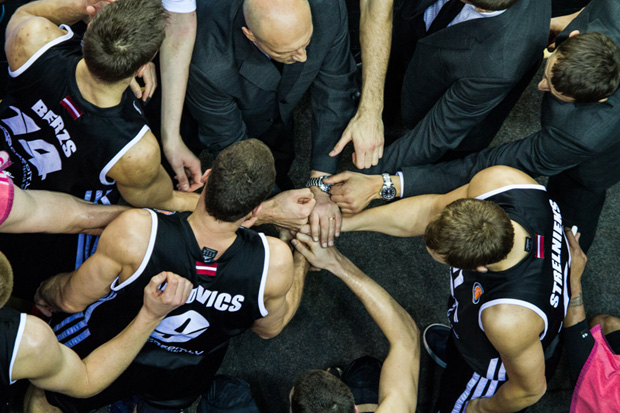
The “group of death” lived up to its billing. Traditional league powerhouses Khimki (14-4) and UNICS (14-4) tied for 1st place with Moscow Region earning the top seed thanks to point differential. Sergei Bazarevich’s Krasnye Krylia shocked with a 12-6 mark, tying Spartak for 3rd place. The battle for 5th and 6th place, meanwhile, was the highlight of the regular season.

Astana, Donetsk and Lietuvos Rytas battled it out for the final two postseason berths. Donetsk proved the biggest surprise, bouncing back from a terrible start to close the season on a four-game winning streak, including a win against Spartak in the final game of the regular season. The other two teams played the next day. Rytas was in major trouble, needing a victory against Azovmash and an Astana loss in Tallinn. The Black-Reds took care of business, defeating Mariupol, but the Kazakh champs refused to lose, squeaking out an 85-81 win over Kalev to advance to the postseason and drop the Estonians to last place in the group.
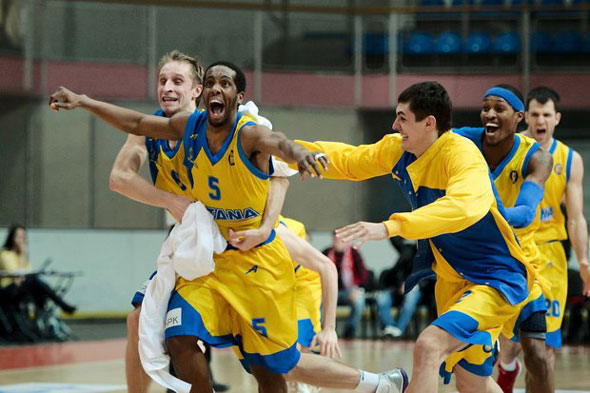
Triple-double
The VTB United League’s first triple-double took place during the 2012-13 season. It’s an unusual accomplishment in the European game, but Viktor Khryapa did it on January 20, 2013. In a game against VEF, the CSKA forward dazzled with a 10-point, 13-rebound and 10-assist performance.
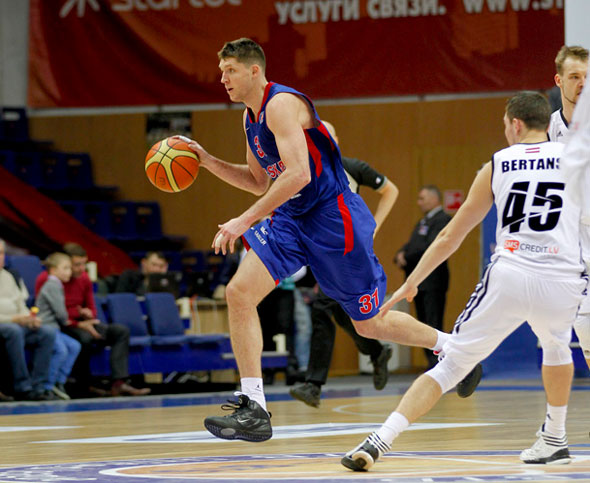
Surprise
Krasnye Krylia’s breakout season was a pleasant surprise. Chester Simmons led the club in scoring, while Aaron Miles and Andre Smith also made big contributions. Much of the credit, of course, went to head coach Sergei Bazarevich.
Krylia lost at home to Astana on October 22, 2012, in a game the Russians were expected to win. There was talk that Bazarevich might even be fired, but that quickly died down as Samara put together a nine-game winning streak (including the EuroChallenge and Russian Cup) and turned its season around 180 degrees. Krylia even had a chance to catch Khimki in the standings, but lost a heartbreaker in Khimki on the final day of the regular season.
Samara met Triumph in the first round of the playoffs, sweeping the series, 2-0. CSKA was up next in the quarterfinals. Despite getting eliminated, Bazarevich’s men did not embarrass themselves against the reigning champs and even won one game at home.
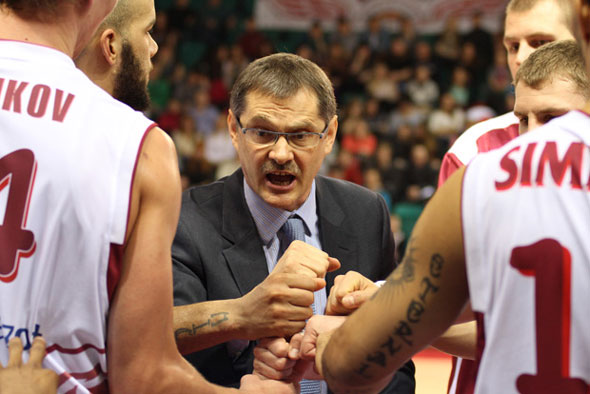
Krasnye Krylia enjoyed even more success outside the league, winning both the Russian Cup and EuroChallenge. Bazarevich’s aggressive, up-tempo basketball proved the perfect recipe for the small-budget club.
Highlight
It’s always memorable when legends of the sport take the court. During the 2012-13 season, basketball fans had two opportunities to watch the former stars of the CSKA – Zalgiris rivalry duke it out one more time, first in Kaunas and later in Moscow. The legends game were played prior to regular season contests between Zalgiris and CSKA and matched the emotions and excitement of the official games both times.
Arvydas Sabonis, Vladimir Tkachenko, Sergejus Jovaisa, Sergei Tarakanov, Anatoly Myshkin and other famous players suited up at a sold-out Zalgiris Arena, putting on a real show. Sabonis was the star, dunking, blocking shots and hitting 3-pointers to put the crowd into a frenzy. The score was close until the final seconds, just like the good old days in the Soviet league. In the end, Sabonis blocked a potential game-winning shot from Tarakanov to give Zalgiris a 46-45 victory.
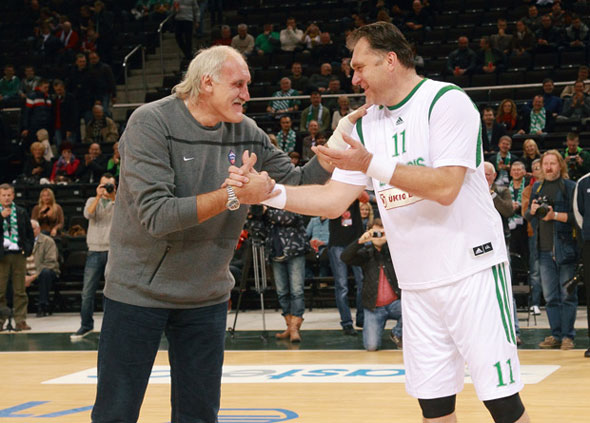
The return game was played in Moscow’s USH CSKA. Arvydas Sabonis’s arrival in Moscow was a highlight all of its own, both on and off the court. The other basketball legends also did not disappoint, putting on a show and finishing the game in a 28-28 tie. There would be no overtime as friendship won the day!
Beyond the basketball, these two games provided an opportunity for old friends to get together and reminisce about old times, while giving the fans a chance to relive the glory years of Soviet basketball.
Playoffs
The 1st and 2nd-place teams in both groups advanced directly to the playoffs, while eight more teams got started in the first round. Two of the four first-round series went to a decisive Game 3. The outcome of the Spartak – Nizhny Novgorod series was the biggest surprise. The Black-Whites had made steady progress, but St. Petersburg had more experience and higher expectations.
The series started well enough for Spartak as they picked up a 14-point road victory. The teams then moved to St. Petersburg, where everything changed. Nizhny evened the series, before pulling out a thrilling 88-85 double-overtime win in Game 3 to reach the quarterfinals.

The VEF – Astana series also piqued plenty of interest. Both teams had enjoyed breakout seasons and made the postseason for the first time, while playing attractive basketball. After three games, VEF escaped to the quarterfinals, led by the magnificent E.J. Rowland.
The top seeds entered the competition in the second round. Three of the four teams backed up their seed with CSKA and Zalgiris advancing past Krylia and Nizhny in four games, respectively, and Khimki needing just three games to eliminate VEF. UNICS was the only club to come up short, dropping a four-game series to Lokomotiv-Kuban.
In the semifinals, Lokomotiv continued its steady play, knocking off Zalgiris in four games, 3-1.
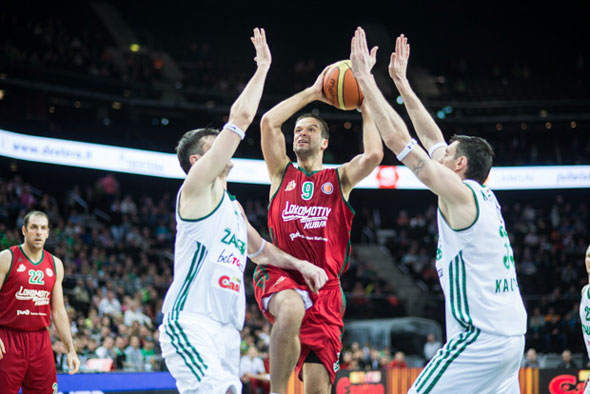
The second semifinal series between CSKA and Khimki was far more dramatic and became an instant classic, going all five games. The showdown featured close finishes, outstanding individual performances and hard-fought battles on every inch of the court.
The Yellow-Blues won Game 1, before dropping the next two. Game 4, however, belonged to Khimki, setting up a dramatic Game 5 in Moscow Region. Despite a sellout crowd, Rimas Kurtinaitis’s club came up short, falling to CSKA 87-64.
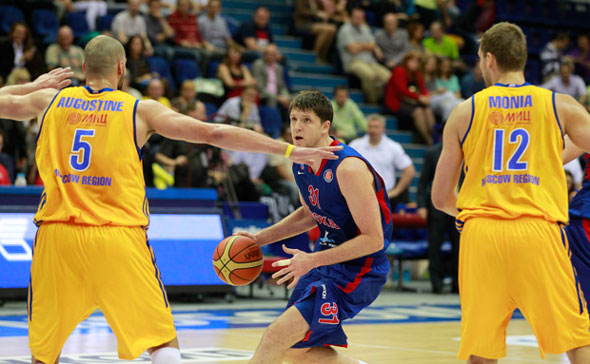
Finals
Lokomotiv-Kuban reached a new level in 2013. The club won the Eurocup and got on a roll in the VTB United League, advancing all the way to the finals. But the southern club couldn’t knock off CSKA and win the league championship, even with injuries to several key CSKA players (Milos Teodosic and Alexander Kaun). The Red-Blues had the home-court advantage and they took advantage, winning both games in Moscow comfortably before the series shifted to Krasnodar.
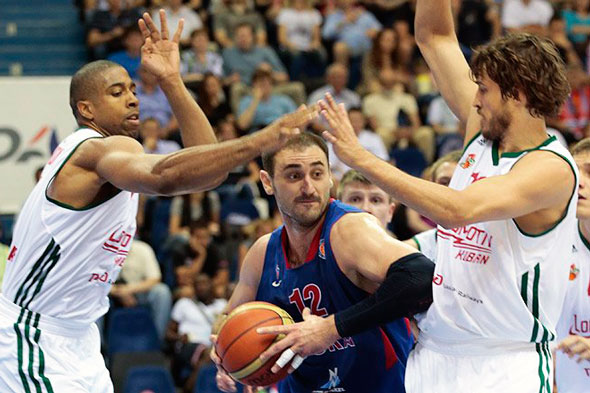
Game 3 at Krasnodar’s Basket Hall was a sellout. Prior to this, the opponents had played 41 games, with Loko enjoying victory just twice. The huge crowd helped the home team get off to a good start and hold on for a 69-58 win, forcing Game 4.
CSKA not only lost Game 3, but also leader and captain Viktor Khryapa to injury. That couldn’t help but have an effect on the team’s play. Derrick Brown helped Lokomotiv jump out in front in the first half of Game 4 with a return to Moscow for Game 5 appearing quite likely. The momentum shifted, however, in the third quarter after Alexey Savrasenko and Dmitry Sokolov got a little too chippy under the basket and were both ejected.
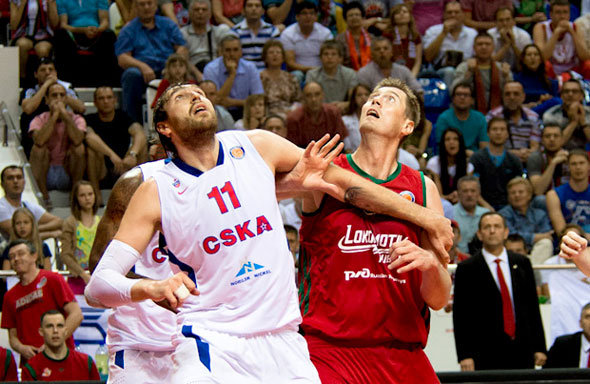
Without Savrasenko, Loko had a big hole at center and completely lost its rhythm. Krasnodar’s offense began to sputter and CSKA gradually took control, taking the lead in the 4th quarter. Lokomotiv failed to mount a comeback, giving CSKA a 59-54 victory and second straight VTB United League championship!
“These playoffs and the entire season were probably the most difficult of my career and they brought a lot of joy in the end. I don’t think any other league in Europe has such a difficult path,” – CSKA head coach Ettore Messina.
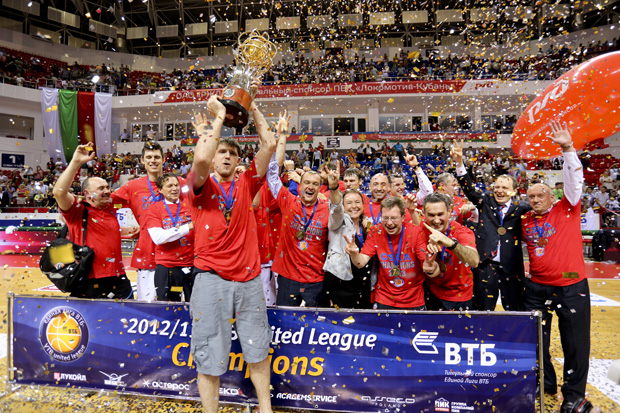
Stars
E.J. Rowland. Alongside Krasnye Krylia and Astana, VEF took the biggest step forward in the 2012-13 season. Much of the credit for the Latvians’ breakthrough campaign belongs to Rowland. The offense ran through the American star, who led the league in scoring and efficiency rating and knocked down several clutch buzzer-beaters. Rowland fully deserved his MVP title, averaging 17.1 points, 5.9 assists, 6.1 rebounds, 2.0 steals and an efficiency rating of 20.8 per game.
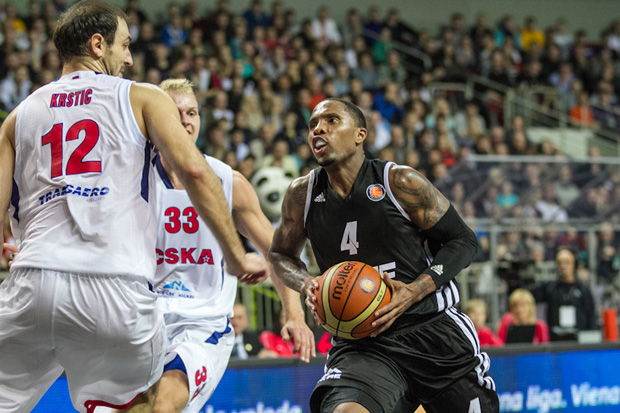
Nick Calathes. Named Eurocup MVP and regular season MVP by league fans, the unstoppable Calathes enjoyed a terrific season. Lokomotiv-Kuban’s Greek point guard kept it up in the playoffs, averaging 12.6 points, 3.9 rebounds, 6.5 assists, 1.4 steals per game. After leading Lokomotiv to the playoff finals, Calathes signed with the Memphis Grizzlies in the offseason.
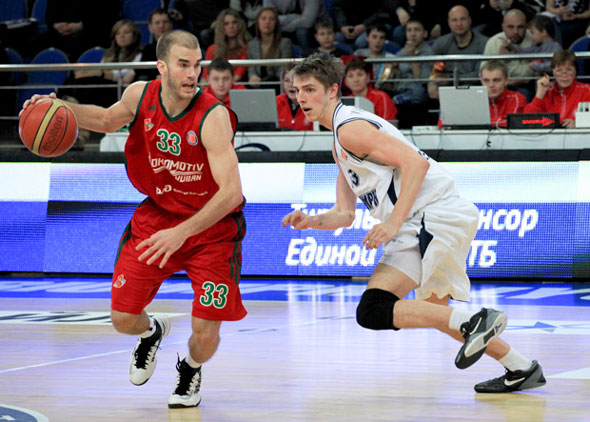
Ksistof Lavrinovic. The Zalgiris center put up big numbers in the regular season and playoffs. Despite financial difficulties and injuries in Kaunas, Ksistof helped Zalgiris overachieve much of the season and posted impressive individual numbers.
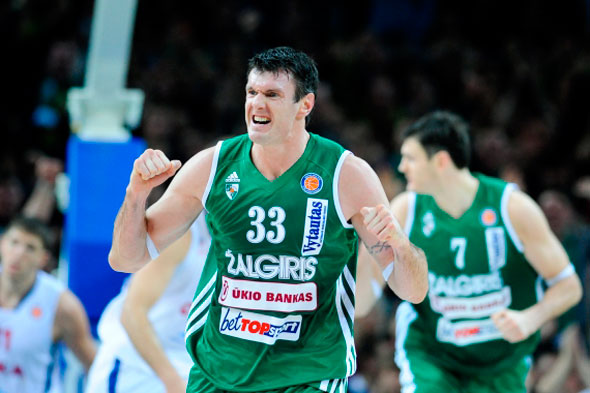
Semen Antonov. Nizhny Novgorod enjoyed its best season yet in 2012-13 and captain Antonov was recognized as the team MVP. The Russian forward delivered when his team needed him most, helping Nizhny to a hard-fought series win vs. Spartak before dropping a quarterfinal series to Zalgiris. Antonov had an impact in every facet of the game, which was also reflected in his stats: 13.0 points, 4.7 rebounds, 3.0 assists and 1.0 blocks per game.
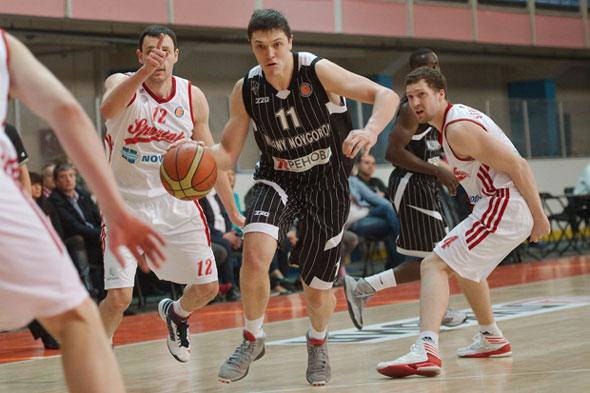
Sergey Karasev. The Triumph guard made waves across Europe with his play at Triumph. Just 19 years old, Karasev starred for the Lyubertsy club, helping the team reach the postseason in its first VTB United League campaign. Karasev averaged 16.3 points per game, finishing in the top five for scoring while winning the Young Player of the Year award.
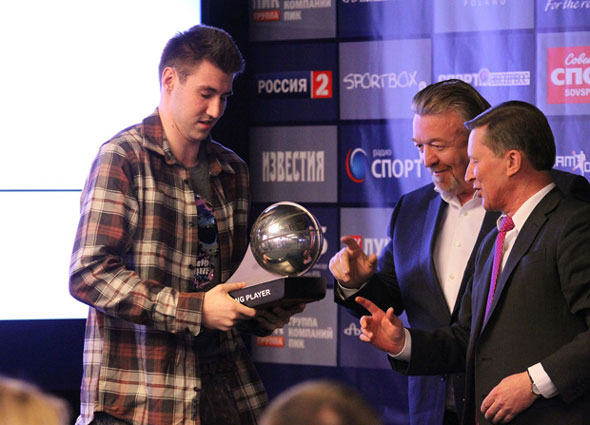
Andrey Vorontsevich. He was the X-factor in the playoffs after a quiet first half of the season. Vorontsevich stepped up after CSKA’s loss in the Euroleague Final Four, helping lead Ettore Messina’s squad to another championship.
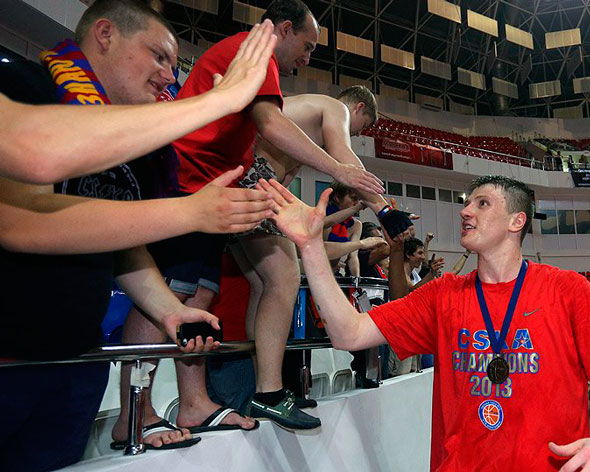
Viktor Khryapa. The CSKA captain was the biggest reason the Army club was able to defend its title. Khryapa was among the league’s most valuable players during the regular season and even recorded the first VTB United League triple-double. Once the playoffs started, he got even better despite lingering injuries. Not surprisingly, he picked up the playoff MVP in addition to winning the championship.

Stats
15,812 fans at the Zalgiris – CSKA game in Kaunas, which set the league attendance record.
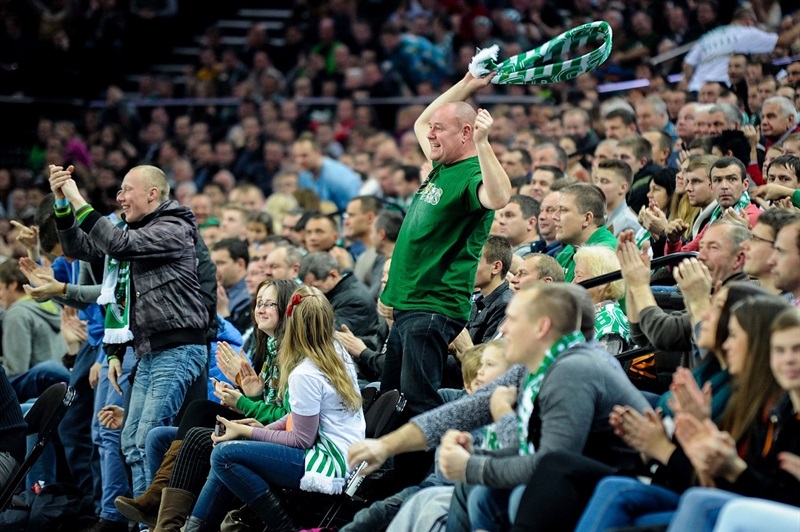
49:36 – record amount of time on the court in a game, set by Neptunas guard David McClure against Enisey.
35 assists – Khimki set a new league record in a game against VEF.
22 steals – Triumph set a new league record in a game against Nymburk.
Video
Final Standings

2013/14 Season. A Cinderella story by «Nizhniy Novgorod», a harsh dose of reality by CSKA.
The fifth season of the United VTB League has produced a number of memorable storylines. The recognition of the League’s international status, the launch of the youth tournament, Krasniy Oktyabr’s impressive debut, Randy Culpepper’s scoring record, new episodes of the blockbuster Khimki versus CSKA rivalry and an 18-game winning streak by the team from the Moscow Region, the Regular Season MVP Andrew Goudelock and the Serbian magician Milos Teodosic, a Cinderella story by Nizhniy Novgorod, and a fourth, hard-earned title won by CSKA.
Prologue
The VTB United League has grown and developed over each year of existence, which demanded changes in format. 2013/14 Season became the first season ever with the system of competition and the number of participants remaining untouched from the previous year. That didn’t mean that the League’s growth has stalled. Quite the contrary. VTB League has entered the season with newly acquired status of an official European club competition, recognized by FIBA Europe as a successor to a Russian Championship.
As the new season was being presented to the public, several new individual awards were introduced. Along with the familiar nominations (Regular Season and Play-off’s MVPs, Players of the Month, Rookie of the Year Award and an Award to the Best Player for each of the 9 participating countries), five brand new awards were added. Namely: The Scoring champion, The Defensive Player of the Year, The 6th Man of the Year and The Coach of the Year. The new season had also marked the launch of VTB United Youth League, which consisted of 11 teams from Russia.
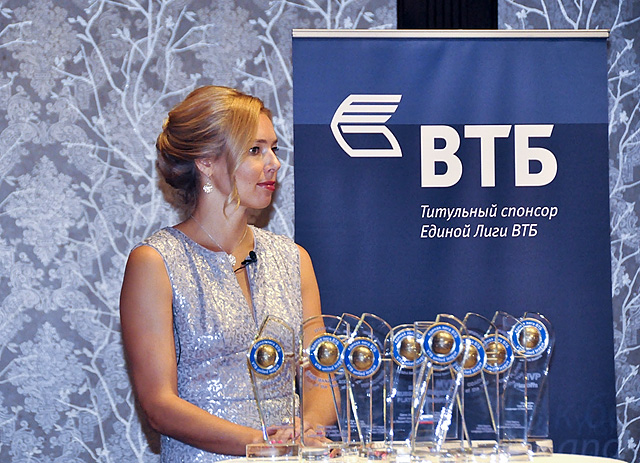
“This year we’re starting the season as a League that is recognized by FIBA. Also, Russian Basketball Federation has delegated the rights to the Russian Championship to us for free. The country’s first team will be chosen among the ten Russian clubs participating in the League. There are many surprises we have in store for the basketball fans this year. One of them is the United Youth League. Every success-oriented club has to think ahead, concern itself with the future of basketball and support its young talent. The development is the key factor here. There will be more basketball on the Russian TV screens starting in 2013/14, as we have signed a tree-year contract with one of Russia’s largest holding companies VGTRK. With each year the League had become better and this year won’t be an exception” – said Sergei Ivanov, the President of the United VTB League.
The Format and Participants
Just as in the year before, 20 teams divided into two groups competed in the Regular Season. Each of them played two games against the other teams in their Groups, a home and an away leg. The Russian club Krasniy Oktyabr became the League’s only debutant. While the Volgograd team had taken the place of Lithuanian powerhouse Zalgiris, the number of the countries participating in the United VTB League has remained the same – nine.
The Draw for the 2013/14 Season was being held in Kazan. Colorful atmosphere in the capital of Tatarstan that day has added plenty of additional enthusiasm regarding the new championship.
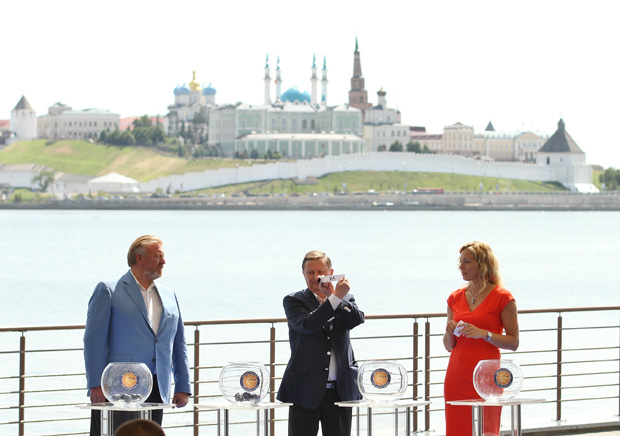
Here are the results of the Group’s Draw:
Group A: UNICS (Russia), Lietuvos Rytas (Lithuania), Lokomotiv-Kuban (Russia), Nizhniy Novgorod (Russia), Enisey (Russia), Spartak (Russia), Turow (Poland), Nymbruk (Czech Republic), Donetsk (Ukraine), Kalev (Estonia).
Group В: Khimki (Russia), CSKA (Russia), Triumph (Russia), Krasnie Krylia (Russia), Astana (Kazakhstan), Krasniy Oktyabr (Russia), VEF (Latvia), Neptunas (Lithuania), Tsmoki-Minsk (Belarus), Azovmash (Ukraine).
Six teams from each group would advance to the Play-offs based on their Regular Season record. The Number 1 and Number 2 seeds from each group would skip the first round and enter the Play-offs at the quarterfinals, while the rest of the teams would have to battle for remaining spots in the 1/8 stage.
Regular Season
The fifth VTB League season started with a game in Krasnodar. The previous year’s finalists Lokomotiv-Kuban defeated Estonian champion Kalev 88:74. A few hours later on their opening night Krasniy Oktyabr had played an over-the-top exciting game against “Tsmoki-Minsk” and won in the overtime 113:112! The debut by the Volgograd team turned out to be especially emphatic due to the record-breaking 41-point scoring outburst by guard Randy Culpepper. Both teams tallied in 225 points combined, also setting a respective new League scoring record. Although the numbers are impressive, no stat sheet would describe the level of excitement during that game’s final seconds!
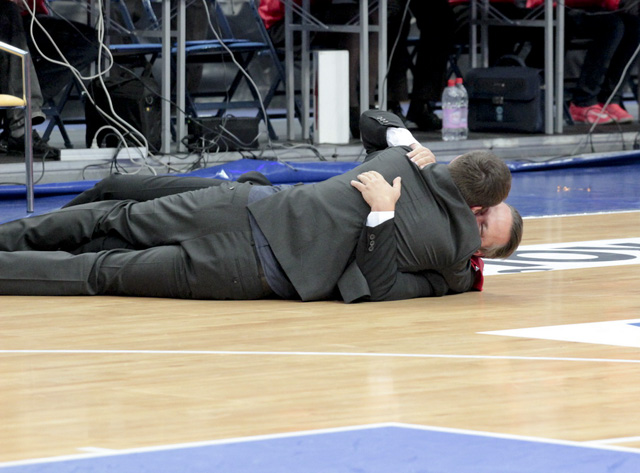
One of the most awaited games in the first half of the Regular Season has been a week five duel between two of the Group A’s favorites and Championship hopefuls – UNICS and Lokomotiv. Andrea Tinkeri’s team has stunned their opponents from Krasnodar with their pressure right from the opening tip and contained them in the 2nd half, producing the fifth straight win to start the year. The team from Kazan and their charismatic Italian coach never let up during the Regular Season, earning the top seed in Group A. The Green and White, led by former NBA player Andrew Goudelock, have only missed a step once – in a game against Kalev, finishing their Regular Season with a more than impressive 17-1 record. As for Loko, this was the year the team from the South has debuted in the Euroleague. The fight on two fronts turned out to be a bumpy walk for the club. The Red and Green lacked stability all year long and finished third in the group with 12 wins in 18 games.
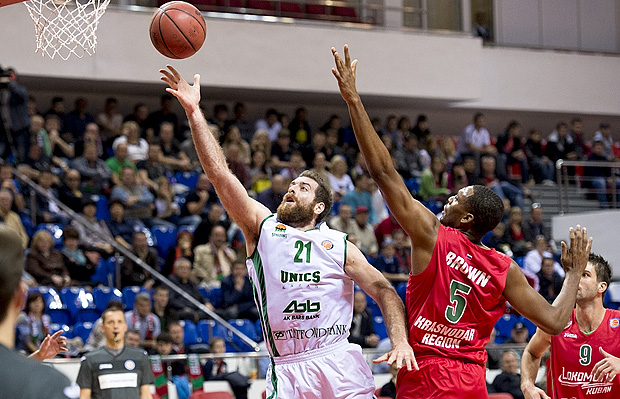
Battling in both the Euroleague and in VTB League turned out to be a little easier for Lietuvos Rytas who finished with a 13-5 record, good enough for the 2nd place in Group А and a reserved trip to the quarterfinals. After the very rocky 1-5 start Nizhniy Novgorod managed to find their rhythm and took advantage of some of their key off-season additions in the later games and finished fourth with a respectable 11-7 mark. The two remaining Play-off spots were filled by Enisey (9-9) and Spartak (7-11).

In Group B all eyes were keyed on the matchup between CSKA and Khimki ever since the moment it was clear they would face each other in the group competition. The two bitter foes produced an emotional and thrilling five-game semi-finals series in the 2013 Play-offs and were ready to write another chapter in their remarkable rivalry. They didn’t leave basketball fans disappointed. Both championship contending teams played each other at the highest level, with Khimki just edging out their opponent 92:87, getting their 8th win in a row and handing CSKA their first loss of the Regular Season.
Rimas Kurtinaitis’ team continued their winning ways and arrived to Klaipeda for their week 12 matchup versus Neptunas with a perfect win/loss record. By notching the 12th straight win, the Blue and Yellow had repeated CSKA’s record 12-game winning streak from 2011/12. As if it was written, to beat CSKA’s record and have the number one spot in the record books all to themselves, they would have to go through the mighty Red and Blue team for the second time. The highly-anticipated clash between these two titans had been filled with drama until the very last second, ending on a game-winning buzzer beater three by James Augustine – 90:87.
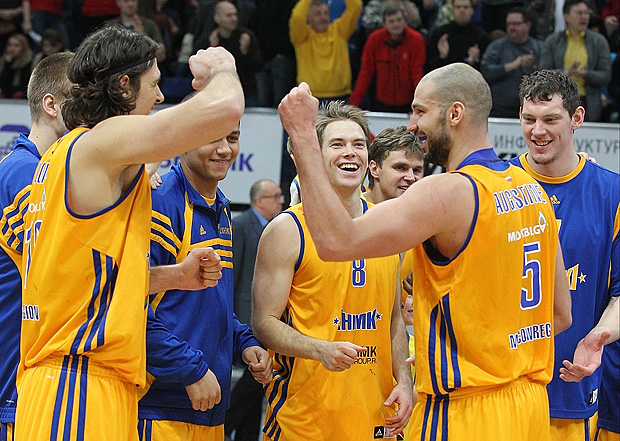
Khimki set a new VTB League record and never looked back, ending their Regular Season campaign with a perfect 18-0. CSKA finished second (16-2). Triumph, led by a Regular Season scoring champion Cory Higgins, finished third (11-7). Krasnie Krylia (9-9) and Astana (8-10) played up to their potential and were joined in the Play-offs by the debutant Krasniy Oktyabr (8-10).
The debut
The play of the League debutant Krasniy Oktyabr deserves an honorary mention. When the club entered the League in 2013, they were mostly met with skepticism, because an unknown team from Volgograd that had only existed for a little over a year and played solely in a Russian second division – the Superleague, was coming to try and fill the shoes of a celebrated European powerhouse Zalgiris from Kaunas. That didn’t stop the Steelers from adjusting quickly on the fly and earning respect. The spectators enjoyed a high volume scoring blend of basketball by Randy Culpepper, eccentric player-owner Dmitriy Gerasimenko, well-balanced international roster and one of the loudest home arenas in the VTB League.
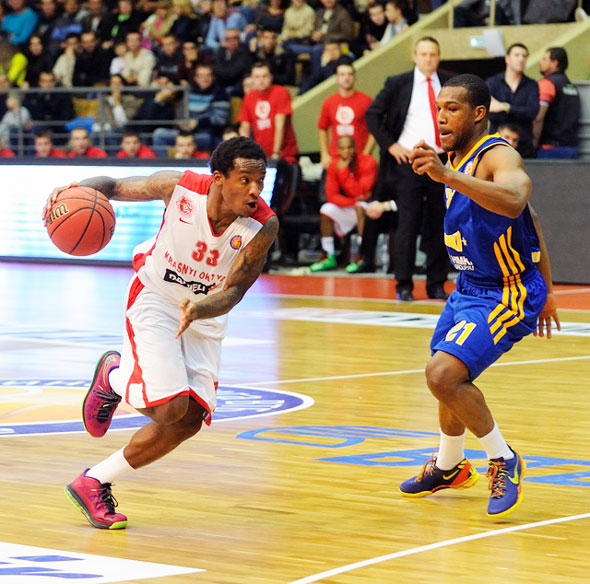
After the 15-year absence the game of basketball was back to the city of Volgograd on the largest stage, in their first season the charming debutant team has earned a spot in the Play-offs and offered the fans a barrage of memorable moments.
The Play-offs
Oktyabr’s memorable debut season was ended in the first round of the Play-offs in a two-game sweep by Lokomotiv-Kuban, although both games were pretty hard-fought wins.
The most intense matchup in the 1st round however turned out to be between Nizhniy Novgorod and ambitious Astana. Russian team was depleted by injuries, with only nine players on the roster, but nonetheless managed to come out on top with a gutsy performance in an away game one, eventually taking care of the series at home 2-0.
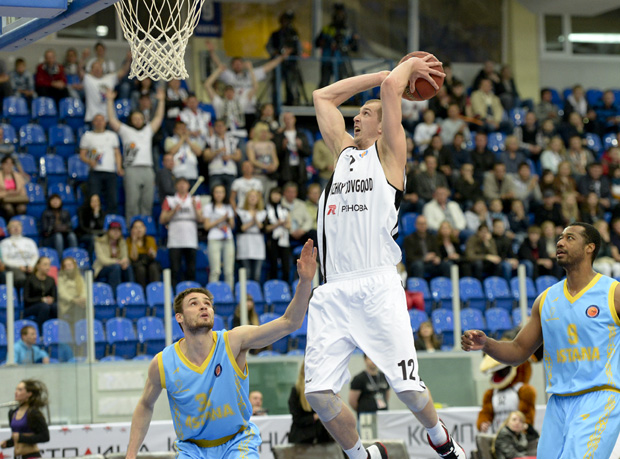
The top four Regular Season teams entered the Play-offs at the quarterfinals stage and right away gave the fans an instant classic and one of the most exciting Play-offs series in recent memory. After trailing two games to none and also experiencing a Euroleague’s Final Four fiasco, the perennial Russian champion CSKA managed to win three straight must-win games and come away on top in a five-game series.
The most sensational upset, however, happened when Nizhniy Novgorod outplayed the best team in the Regular Season. It’s even more impressive that they handled the undefeated 18-0 Khimki club in three straight games, performing a clean sweep.
Unfortunately for them, the Blue and Yellow team didn’t hit their peak form during the Play-offs in May. Nevertheless, they were close to coming away with a victory in game 1 and continuing their record-breaking undefeated streak. Apparantly, Pyotr Gubanov of Nizhniy Novgorod hadn’t received that memo, hitting not only what was the most remarkable shot of that series, but perhaps of the whole 2nd round, to win the away opener for his team. Just like that the undefeated streak was over, while Nizhniy gained important momentum and self-confidence. They built on the success of game one and defeated the not-so-long ago seemingly flawless Khimki in games two and three to complete a highly improbable sweep.
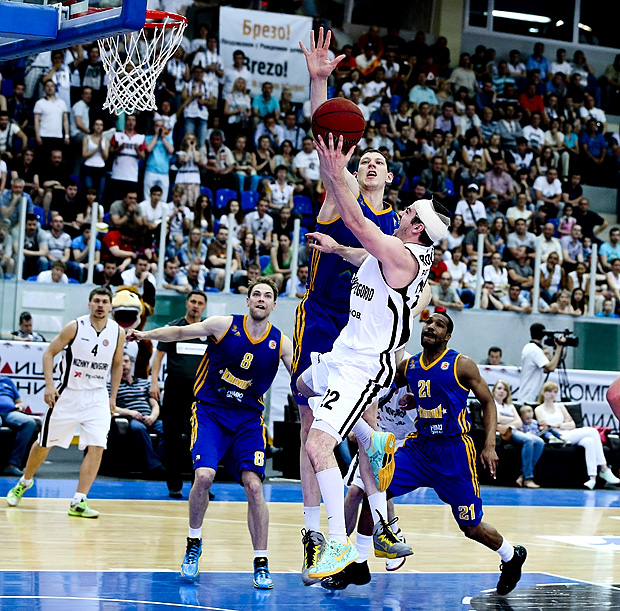
Competition in the quarterfinals turned out to be far less stressful for the other two seeded favorites. UNICS and Lietuvos Rytas both swept their opponents, Krasnie Krylia and Triumph respectively, in back-to-back games.
Nizhniy Novgorod continued writing their own Cinderella story in the semi-finals round by steamrolling through another heavily favored Lietuvos Rytas 3-1, and earning a spot in the Euroleague.
Meanwhile, CSKA swept their semi-finals opponent. The first game of the series also proved to become all too important when it was all said and done in the battle of two super clubs. UNICS was playing in front of their fans and had more time to recover and prepare for the semis. They controlled the game for the first three quarters, but down the stretch had lost Dmitriy Sokolov and Vladimir Veremeenko to foul trouble. At the same time Andrew Goudelock went cold from the field, which allowed CSKA to construct a successful comeback, claw back into the game and send it to overtime in the dying seconds of regulation. Both teams fought hard in OT, not giving an inch to an opponent, but as it often happens in very close Play-offs encounters, a winner was decided by the slightest of margins. CSKA quite simply outlasted UNICS in a battle of men – 92:90.
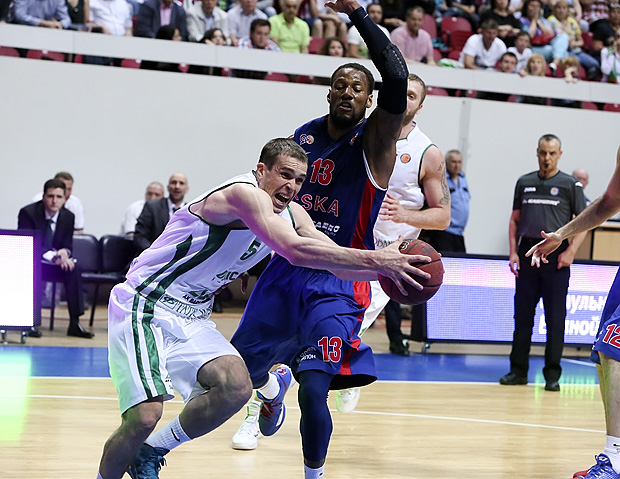
Of course, that kind of a 4th quarter collapse in a game that should have been won, had carried a deep emotional effect on UNICS’ players in a game the next day. It seemed as if they never recovered from blowing the lead in the end of game one, as they watched CSKA take the early advantage in game two and trailed the whole time, eventually falling in a second home game 65:61, while never leading in the game. CSKA took both away games, and despite an inspired effort from Kazan players, they had to settle for a loss in the third game played in Moscow as well. Red Army club by then was in their highest gear, brimming with confidence and finished off the opponents – 92:86.
The Finals
Highly experienced and supremely skilled CSKA was considered a heavy favorite in the Finals. On the other hand, players from Nizhniy Novgorod had shown that they were feeling just fine in the role of an underdog in the 2014 Play-offs, perhaps even preferred such perceived status for some additional motivation. Another factor was the home court advantage, the first two games of a five game series were to be played in Nizhniy Novgorod in front of a rowdy crowd, who would support their team continuously and very loudly.
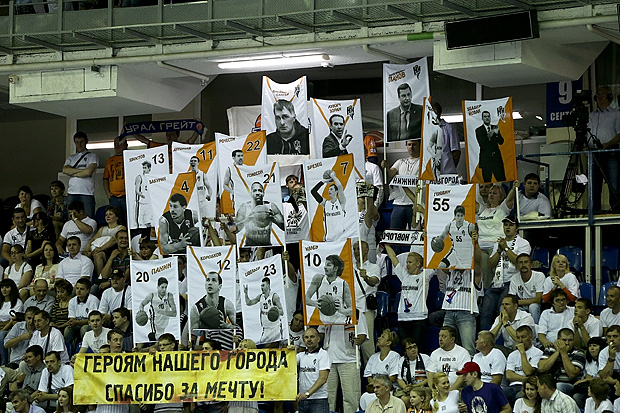
Right from the opening tip of game one the Army club started to methodically build the lead by capitalizing on their advantage in size. After the first 30 minutes that lead ballooned to 17 points. Players from Nizhniy didn’t give up however and brought some intrigue back to the game in the 4th quarter, but the current champions managed to stop the bleeding, winning comfortably by double digits – 65:54. Thus Red and Blue stole the home court advantage in the series, although the team, led by coach Lukic, proved they definitely belonged on the highest stage and were ready to go toe to toe with the favorites.
Nevertheless, CSKA showed their counterparts no mercy in game two. As they did in the first game, the Red and Blue jumped out to an early lead in the first half and built it up in the 3rd quarter. Only this time around the team from Moscow managed to finish the game without letting up in the final period, like they did in game one. The final buzzer indicated a blowout win on the scoreboard – 86:59.
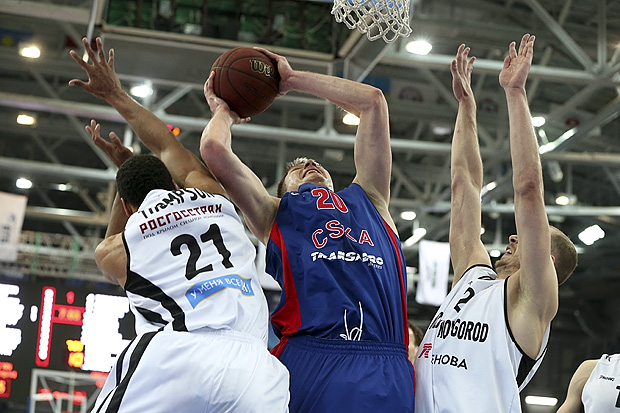
The 1st half of game three was an evenly matched contest, that was until CSKA went on a brief 3-minute run, at the end of which they built a 7-point lead. Nizhniy couldn’t recover from that blow and go on the run of their own, and after a little bit of back and forth, CSKA delivered a champion’s knock-out punch. CSKA swept the Finals in three games and became the VTB United League Champions for the third straight time!

“I’d like to thank the team, the players. Congratulate them on an astonishing accomplishment. They’ve stuck together, played with a lot of desire, helped each other and finished these Play-offs with nine straight wins. This has been the hardest Play-offs for us. During the year we’ve had our share of ups and downs, but down the stretch we played like a team on a mission, with the sense of urgency and responsibility and we’ve had to overcome very strong opposition. We did it by playing our best basketball.” – said Ettore Messina, CSKA’s head coach, right after the final win of the series.
The Biggest Surprise
Nizhniy Novgorod without a doubt! Until recently, the 2010/11 season had to be considered this team’s best. Their accomplishments that year included: a win in a qualifying round of a Challenge Cup, Russian Cup’s Final Four appearance, the 5th place in the Russian Championship and a Coach of the Year Honor awarded to Zoran Lukic. Generally speaking, a team from the middle of the table, Nizhniy had its few moments in the 2012/13 Play-offs, first beating Spartak from St. Petersburg, then giving the mighty Lithuanian Zalgiris all they could handle in a losing effort.
All these achievements pale in comparison to their 2013/14 season. The team added a number of new players in the summer, and it took them quite some time to gel together, but they managed to get on the same page at just the right time and caught fire. Playing as a single, well-balanced unit, they wouldn’t let injuries effect the quality of team play they were putting out on the floor. They also seemed un-phased when having to face more skilled and accomplished competition. The strict and demanding coach Zoran Lukic, reliable Semyon Antonov, dangerous Taylor Rochestie, well-balanced core, their discipline on defense – all the pieces of the mosaic seemingly fell for them at the right time and they started destroying the teams in their way.
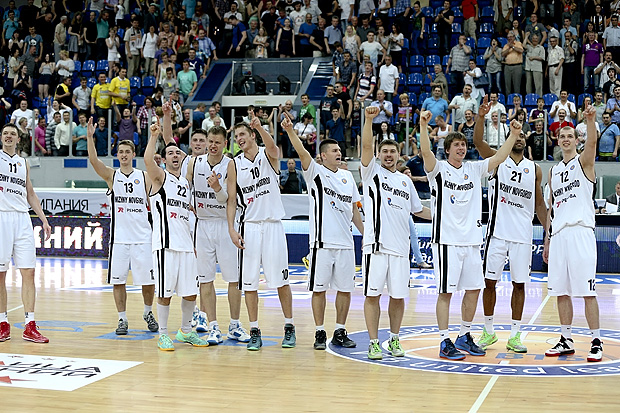
In 2013/14 season the team from the city of Nizhniy Novgorod became the semi-finalists of the Eurocup and played in the VTB United League Finals, adding the Russian Championship silver medals to their trophy case. Nizhniy made a huge leap in just a year becoming one of the leaders of Russian club basketball.
The Most Dramatic Experience
The great quarterfinals series between CSKA and Lokomotiv-Kuban, where the most accomplished team in Russian basketball found themselves in, perhaps, the most difficult situation in the club’s newest history.
Keep in mind that CSKA didn’t lose a Play-off series in the previous 12 years. The Red Army club was up 22 in the second quarter of game one, and all had seemed to be going according to the familiar plot. That is until Lokomotiv team that has never won a game in Moscow before, and which personal record against CSKA was a whopping 3 wins to 42 losses, created a small basketball miracle. The team from Krasnodar slowly chipped away at the lead and cut it in half, while CSKA still looked very relaxed being up by 11 points. The Red and Green then went on a run and not only got back in the game, but also stayed hot down the stretch. They caught just enough fire that proved to be too much even for the mighty CSKA, who fell apart – 83:87 – a remarkable win for Loko.
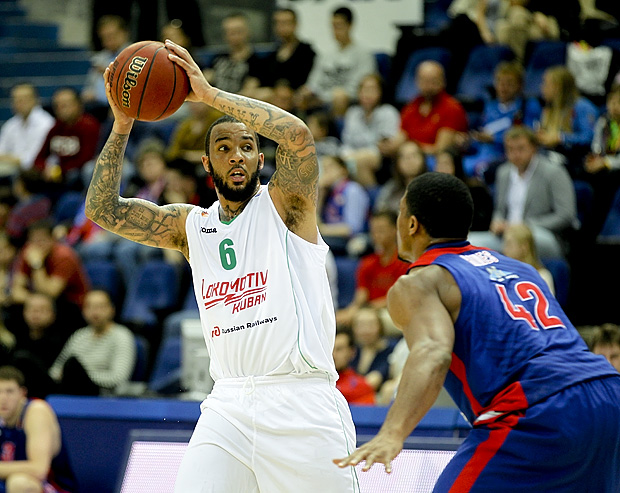
CSKA couldn’t snap out of that funk in the game the next day. Coach Messina and his team had uncharacteristically completely relinquished the control over the situation and lost the 2nd game by a double-digit margin – 66:81. Then there was an emotional press-conference, when Messina himself questioned his ability to control the team, then came the painful loss in the Final Four of the Euroleague. It seemed as if everything was snowballing downhill according to the textbook worst case scenario, and just as CSKA was supposed to get completely crushed, they reminded everyone why you should never underestimate the heart of the champion! They went into a hostile, loud, Red and Green confines of the Basket Hall that demanded that the champion be dethroned, and pulled out two closely fought, tooth and nail, dramatic wins – 76:73 and 79:78.
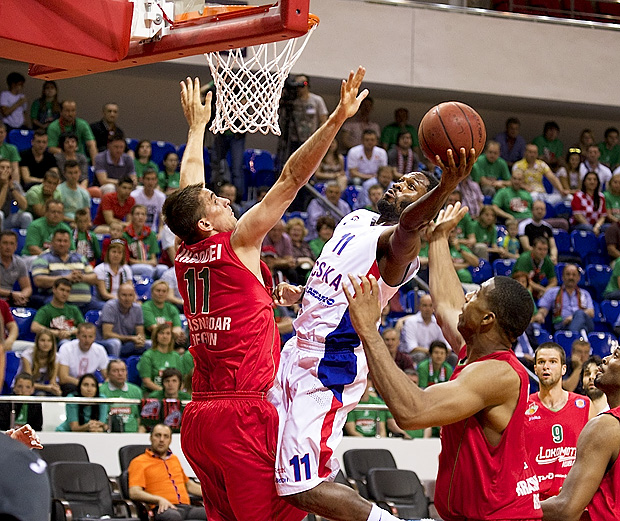
The pressure on the court before the game 5 was enormous, but CSKA wouldn’t let it get the best of them, after overcoming the two games to none deficit. Loko managed to somewhat contain the Army club in the 1st half, only to be shown no mercy by the Red and Blue machine and the reigning champions in the 3rd quarter. CSKA went on an impressive run and set the record straight in the series for good – 84:65, a heroic effort by the Red and Blue, who went on to finish the 2014 Play-offs with a clean sweep.
The Heroes
Andrew Goudelock.
His long distance bombardment, cold-blooded control during the game’s pressure moments, impressive buzzer-beaters. An unstoppable American started the season on a high note and never since let up the pace, deservingly winning the Regular Season MVP award.
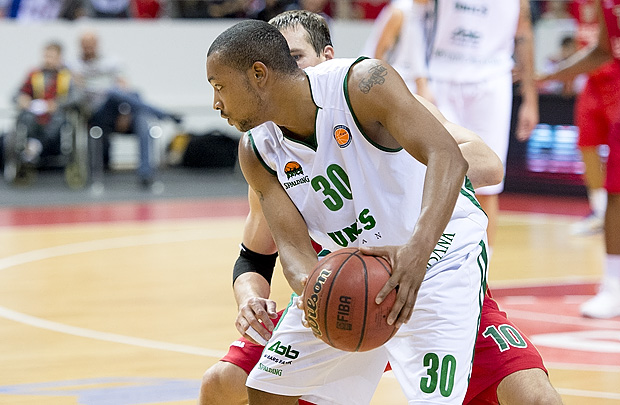
Cory Higgins.
The Triumph were off to a slow start. The addition of Higgins in October took the team from Lubertsy to another level. As a result the club from Moscow region finished 3rd in a group, mostly behind Higgins’ scoring effort – a League leading 21,5 ppg.
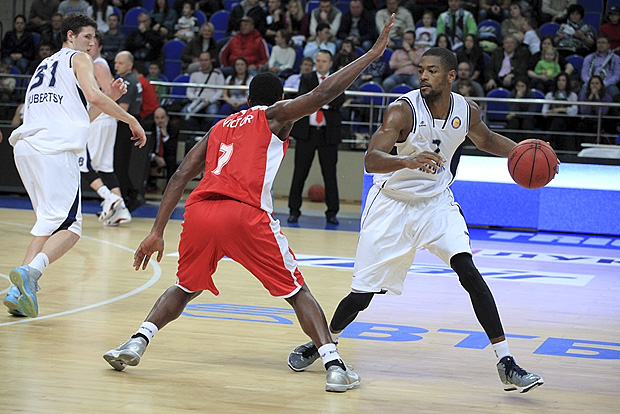
Randy Culpepper.
Always a threat to score on a fast break and a shooter that’s just waiting to get hot, Randy brought the element of Showtime to the game. While time after time dominating the League’s highlight reel, Culpepper also put up impressive scoring numbers on several occasions, setting League’s record for points in a single game with 41, and helping his squad in the Play-offs race.
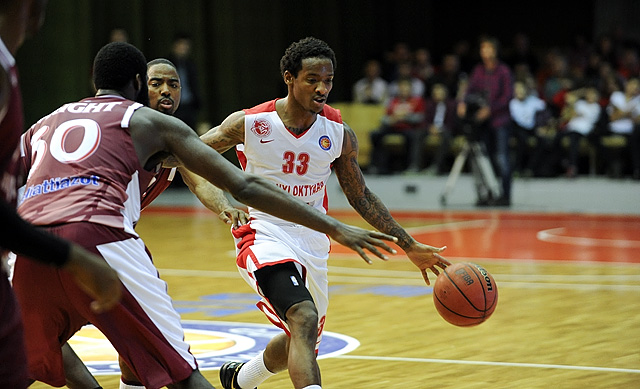
Aleksandr Kaun.
The Defensive Player of the Year. In Kaun’s case we need to mention his frontcourt partner Nenad Krstic. Neither one of them had put up eye-popping Play-offs stat lines, but they were quick to help or cover for each other when it was needed. Their size and interchangeable set of skills set CSKA’s frontcourt apart from the completion, becoming the deciding factor in them winning yet another trophy.
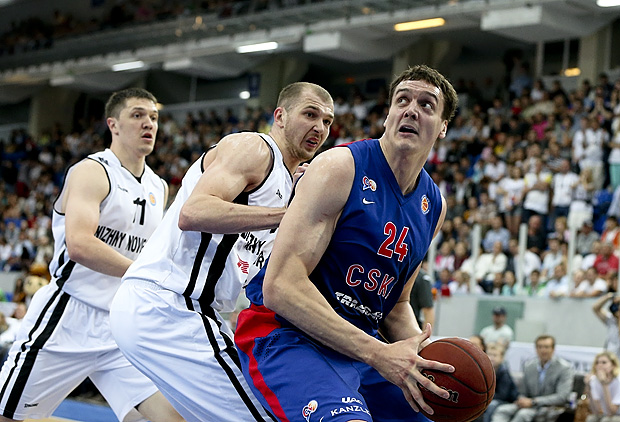
Taylor Rochestie.
This American guard has played his finest basketball during the Play-offs, becoming an instrumental part of his team’s offense. Taylor scored on consistent basis, proved himself in the key moments by hitting some very clutch shots under pressure. You can’t underestimate his role in Nizhniy team’s great success this year.
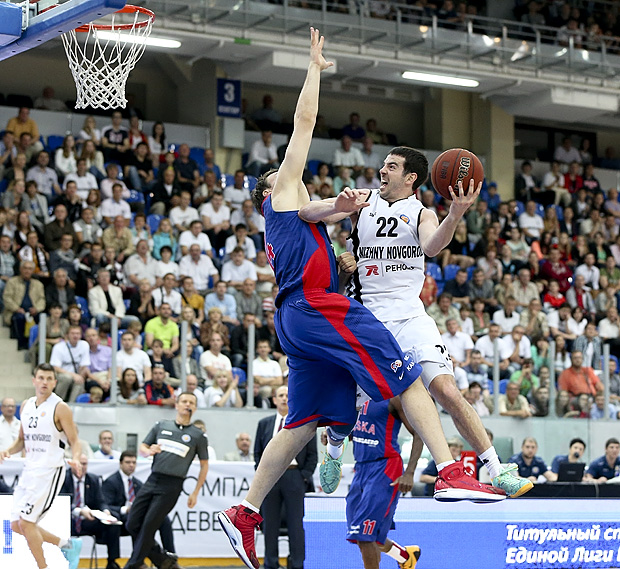
Milos Teodosic.
CSKA were led by the Serbian during two must-win games in Krasnodar. He willed them to win and after they came back from being down 0-2 there was no stopping them. Defenders will continue to have nightmares of the Serb’s seemingly off-balanced three pointers. Teo scored, found open teammates with his brilliant passes, limited the turnovers. He had reset the team’s offense and simply wouldn’t let them lose, therefore fully deserving the Play-offs MVP honors, adding yet more golden hardware to the already impressive list of his team and individual accomplishments.
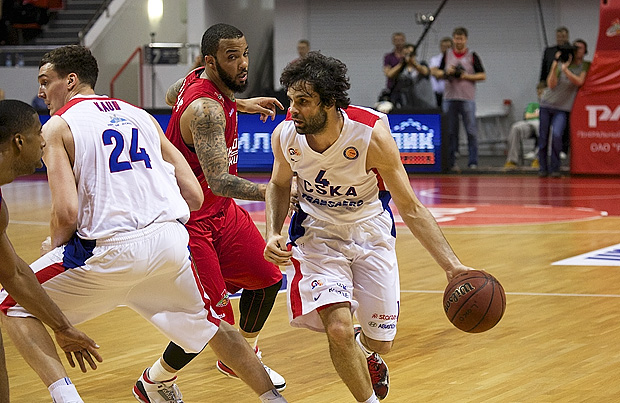
The Numbers
18 Wins in 18 Games – Khimki, led by Rimas Kurtinaitis, set a perfect Regular Season mark, which can only be duplicated in the future.
41 points – Scored by Randy Culpepper in his debut game for Krasniy Oktyabr vs. Tsmoki-Minsk is, to this day, the highest single player scoring game in the history of the League.
225 points – Scored by both teams in a same game on 14th of October 2013 in Minsk is the highest two-team total for points in League history. Team from Volgograd won – 113:112.
66,9 FG% – A Center from Donetsk Marco Killigsworth rarely missed a shot in the 15 games he played that season.
The Video
Summary

